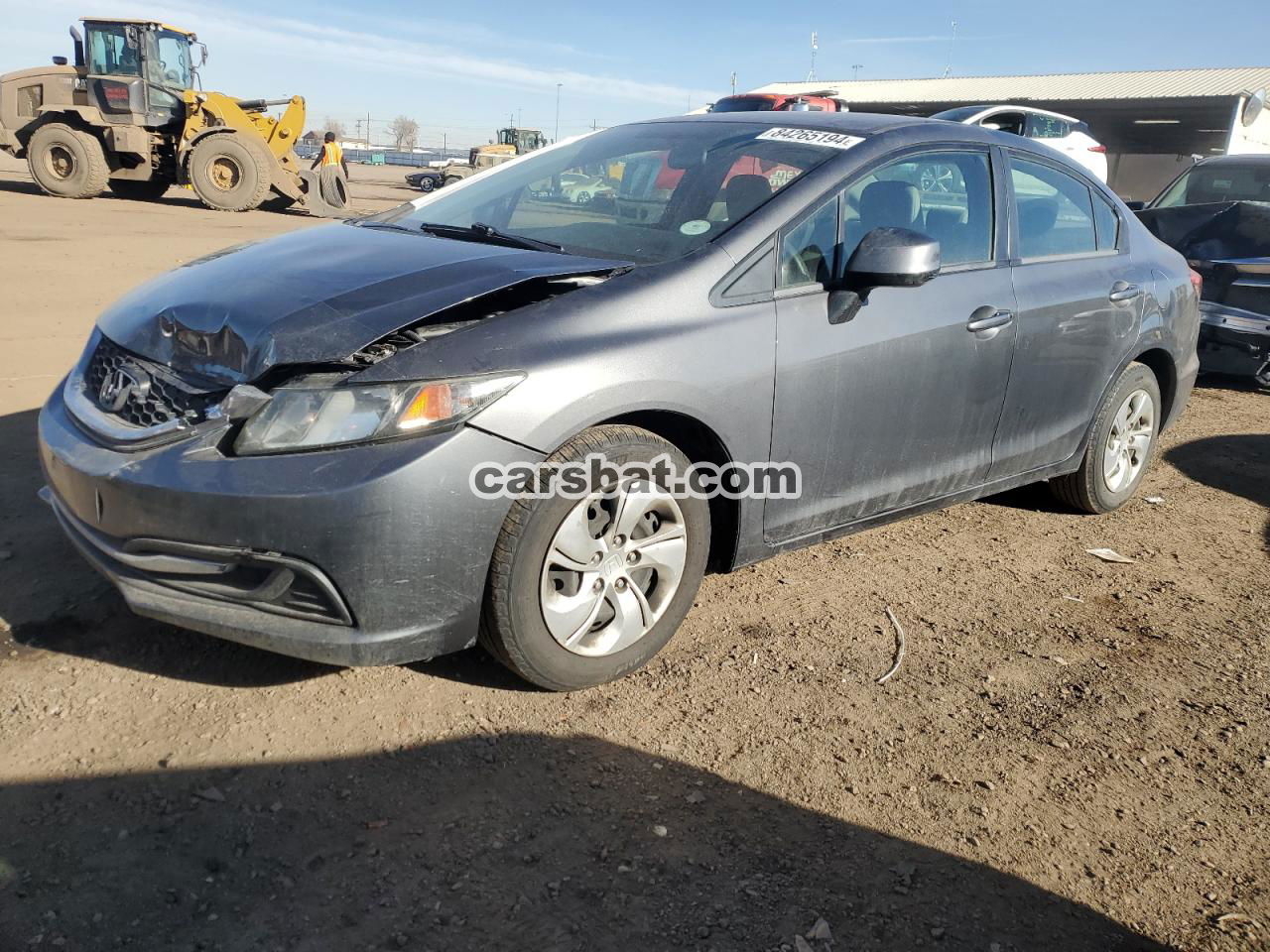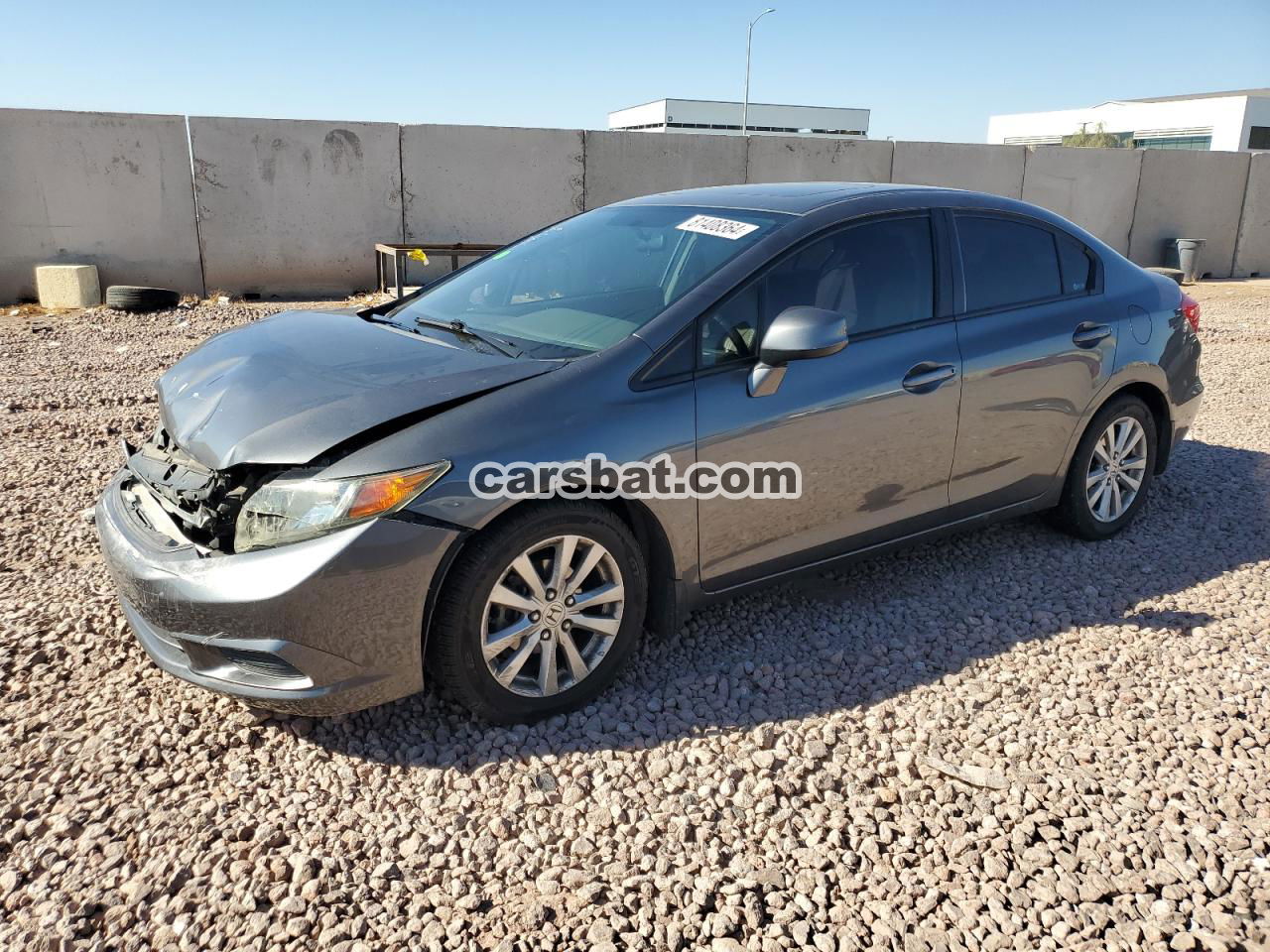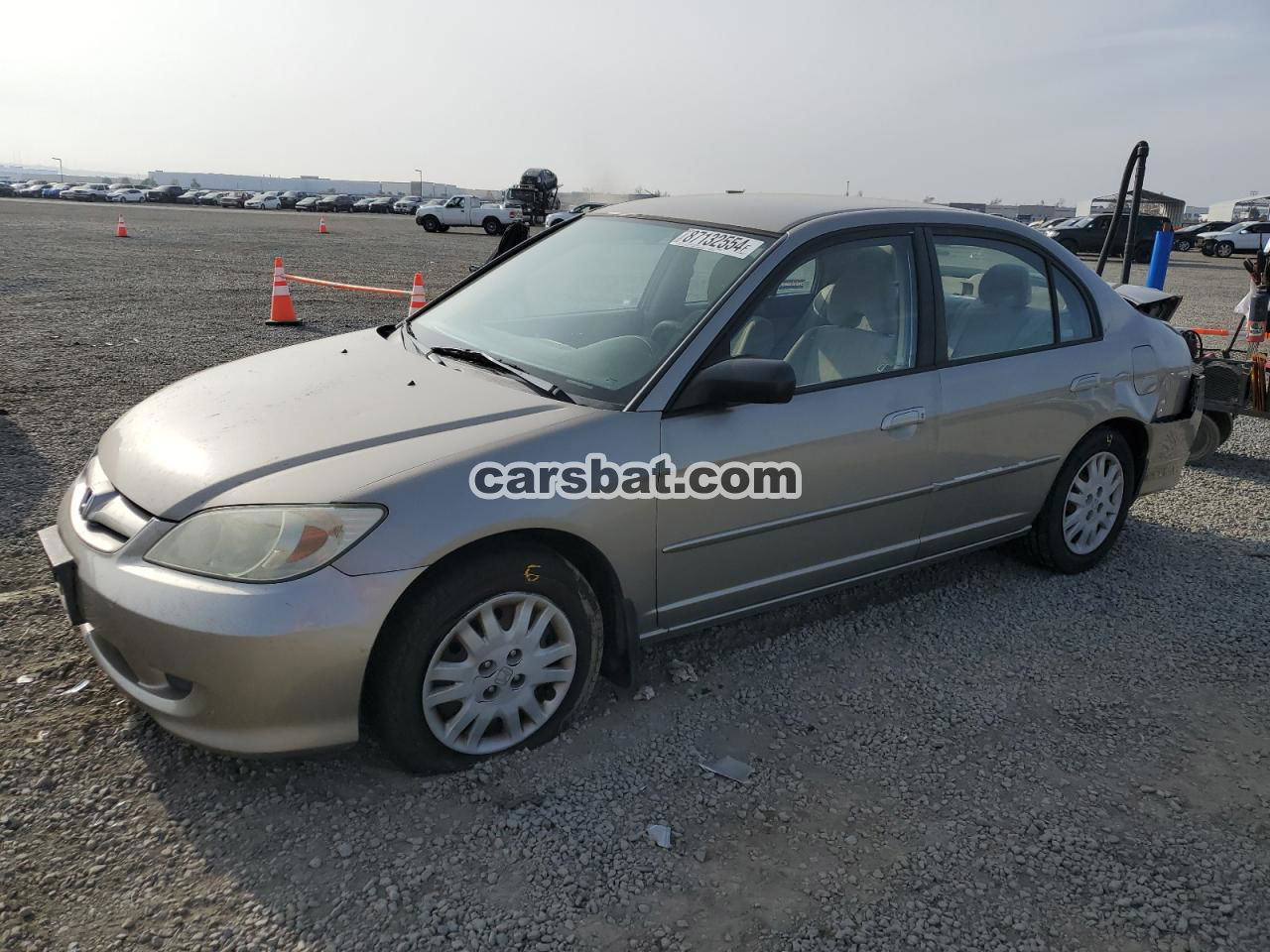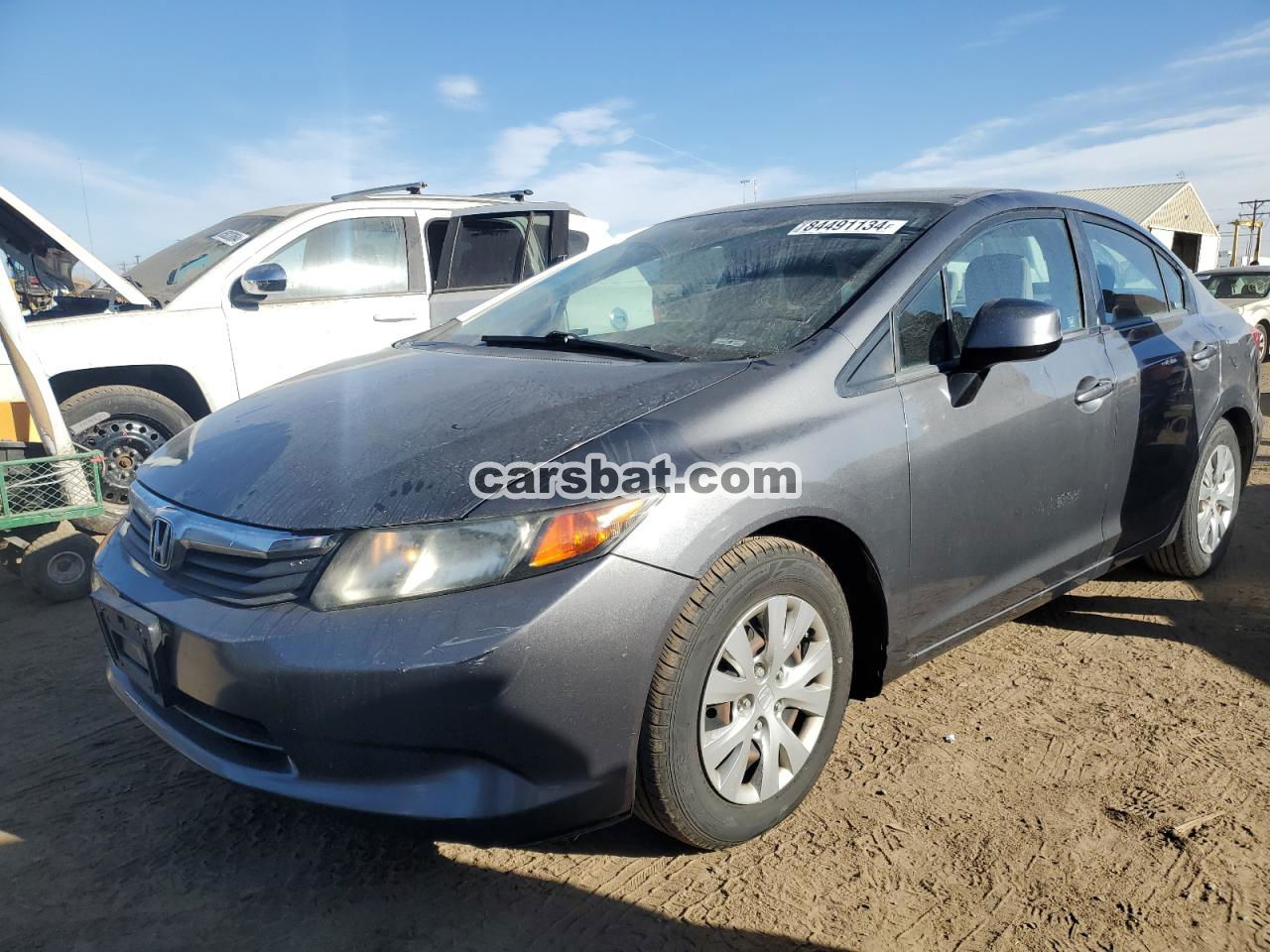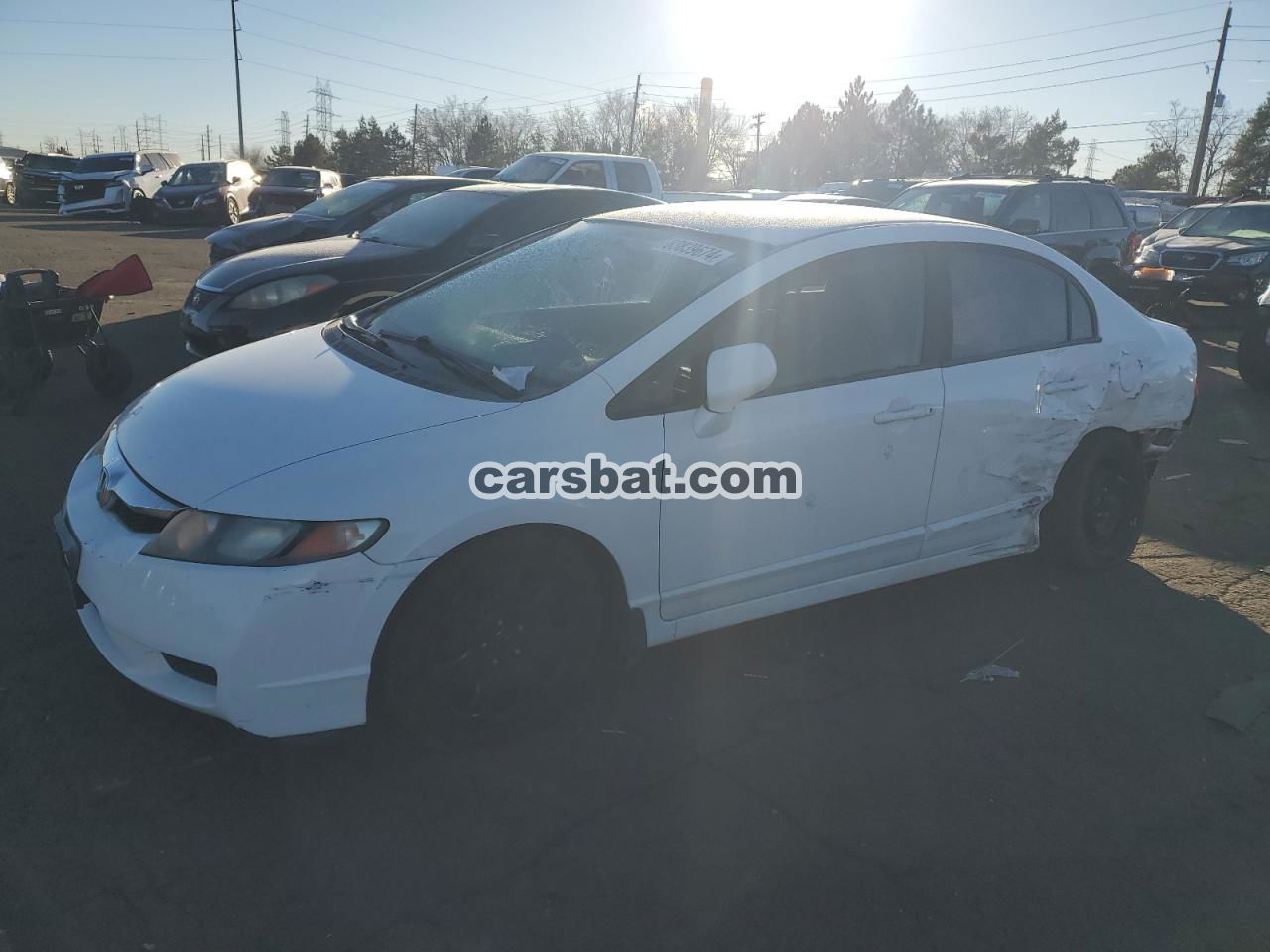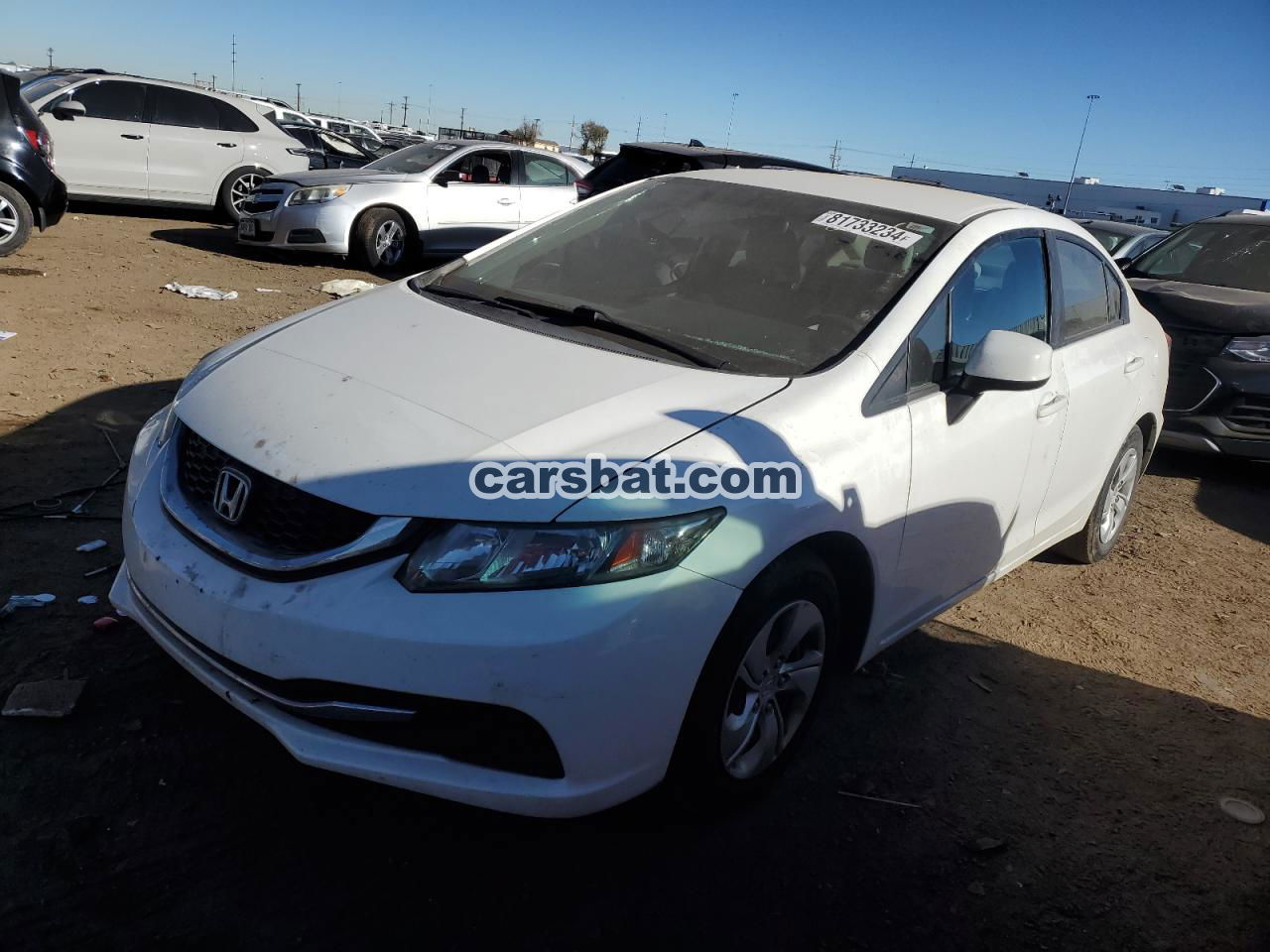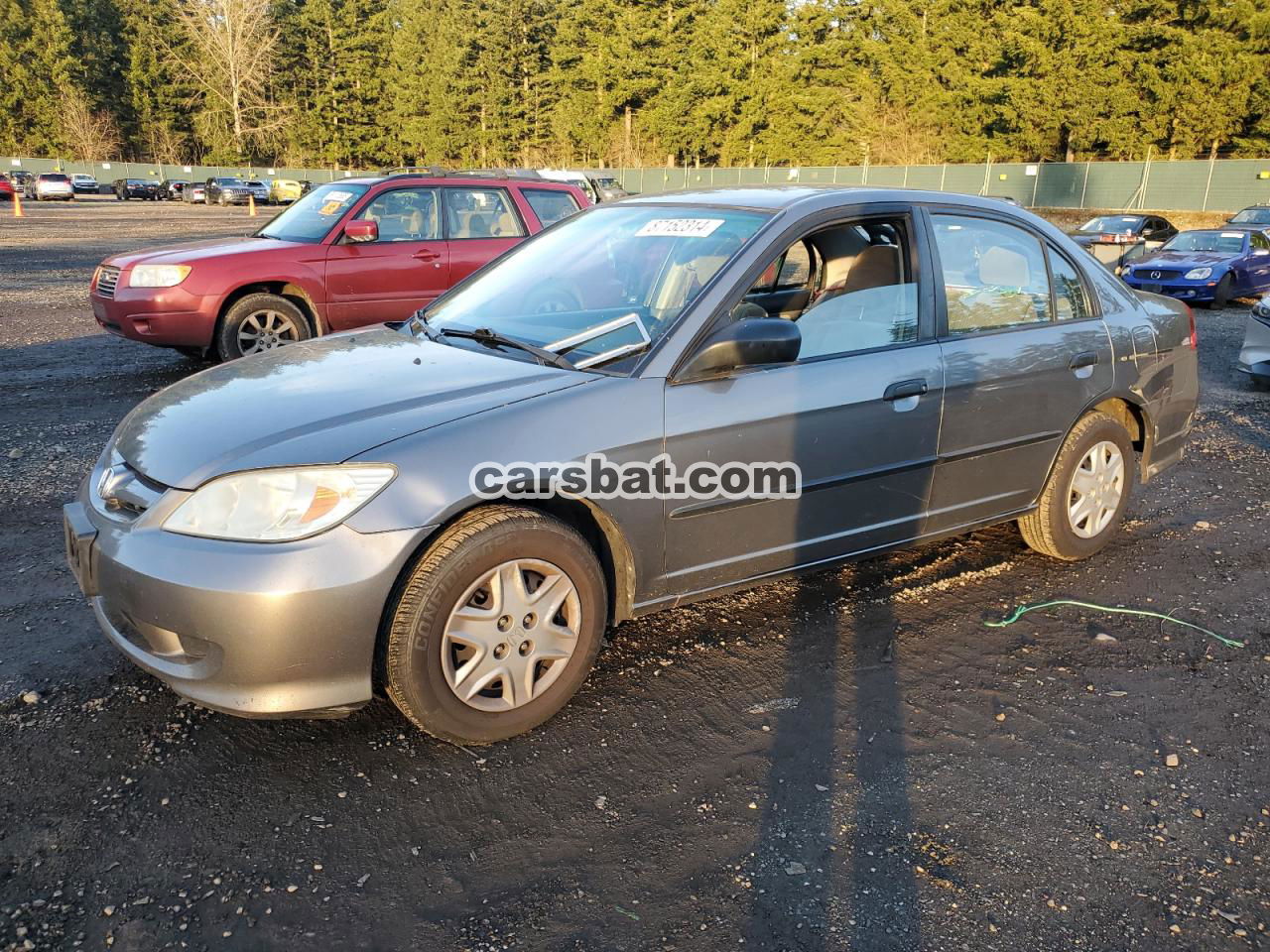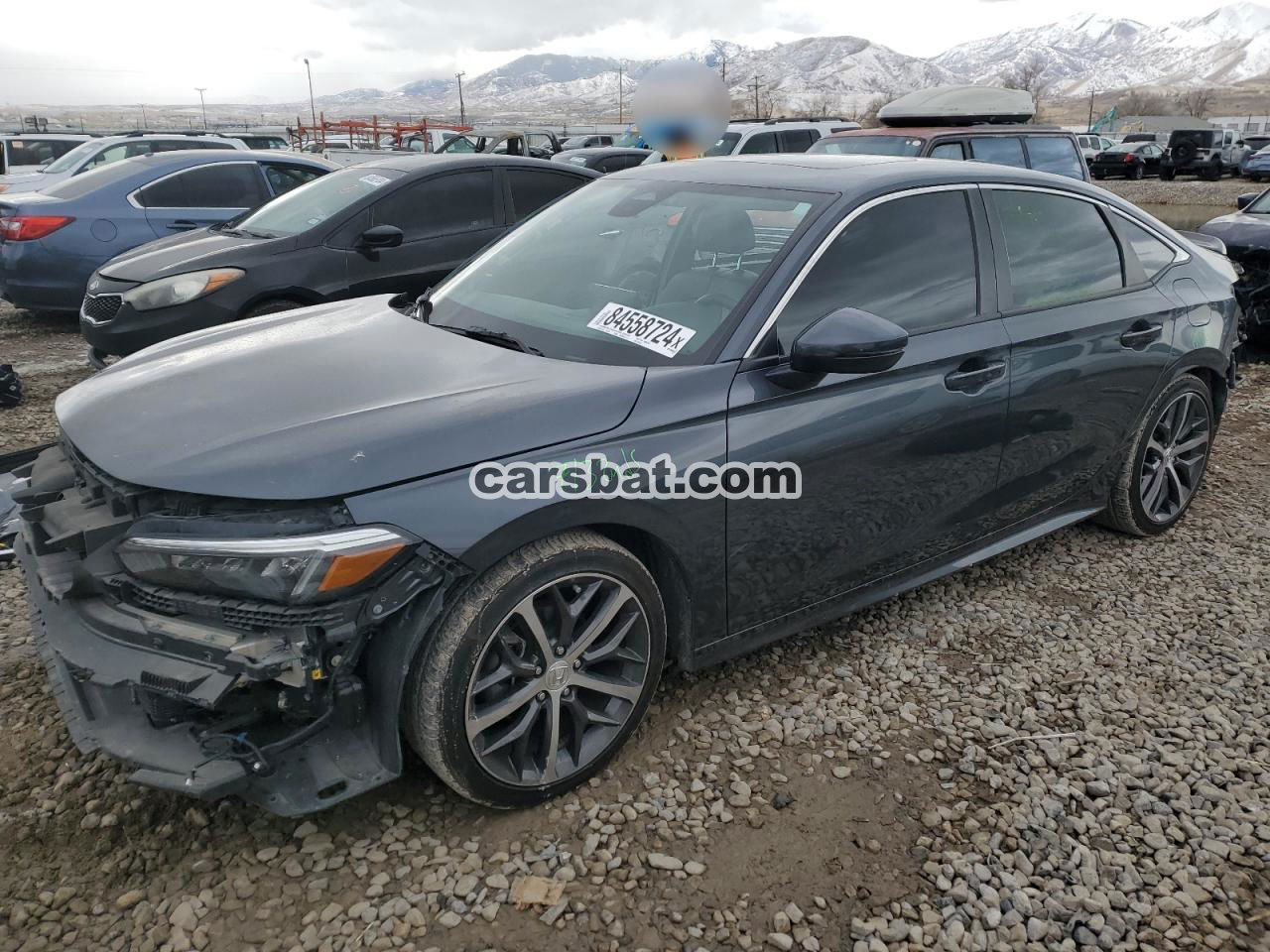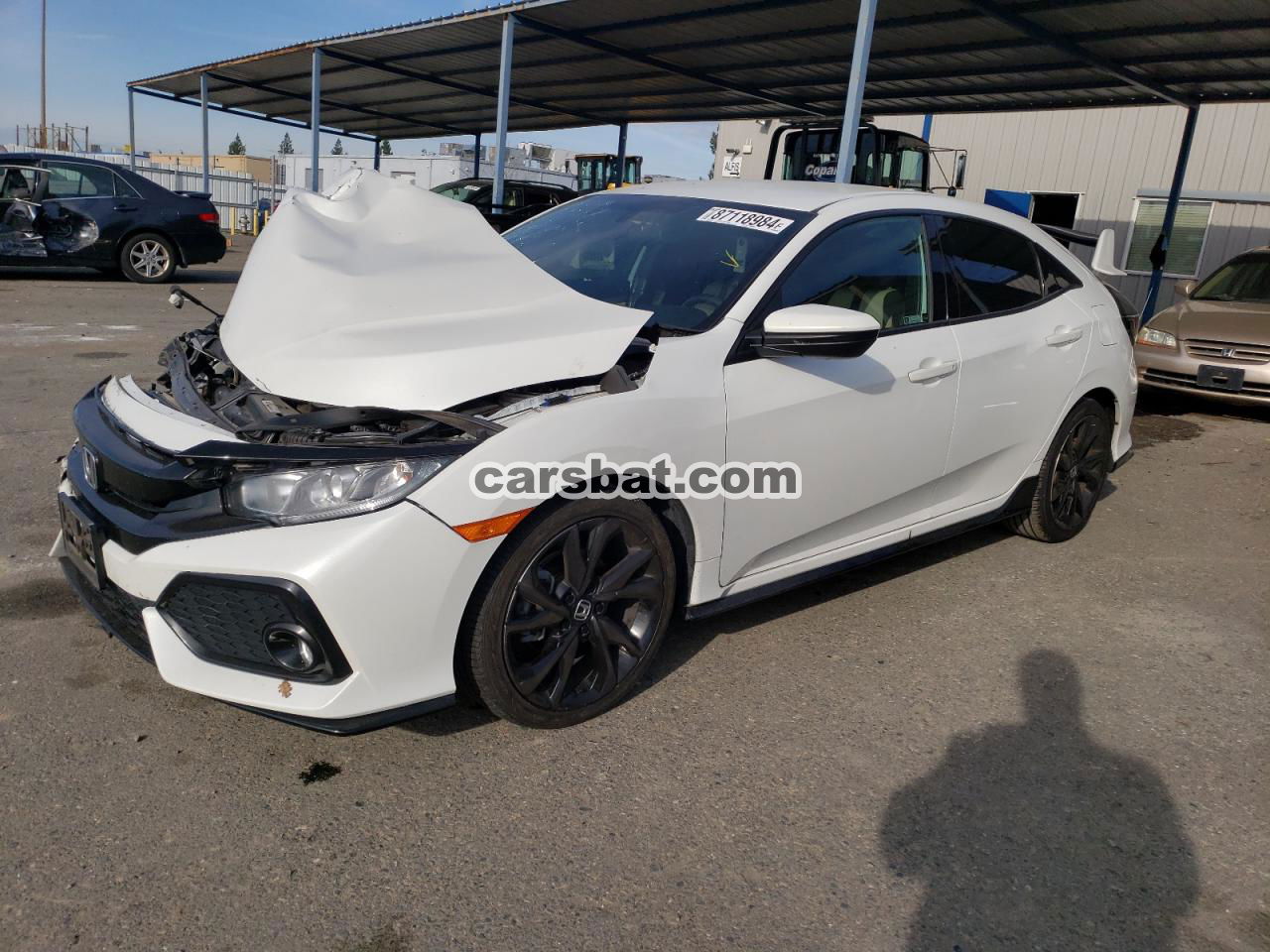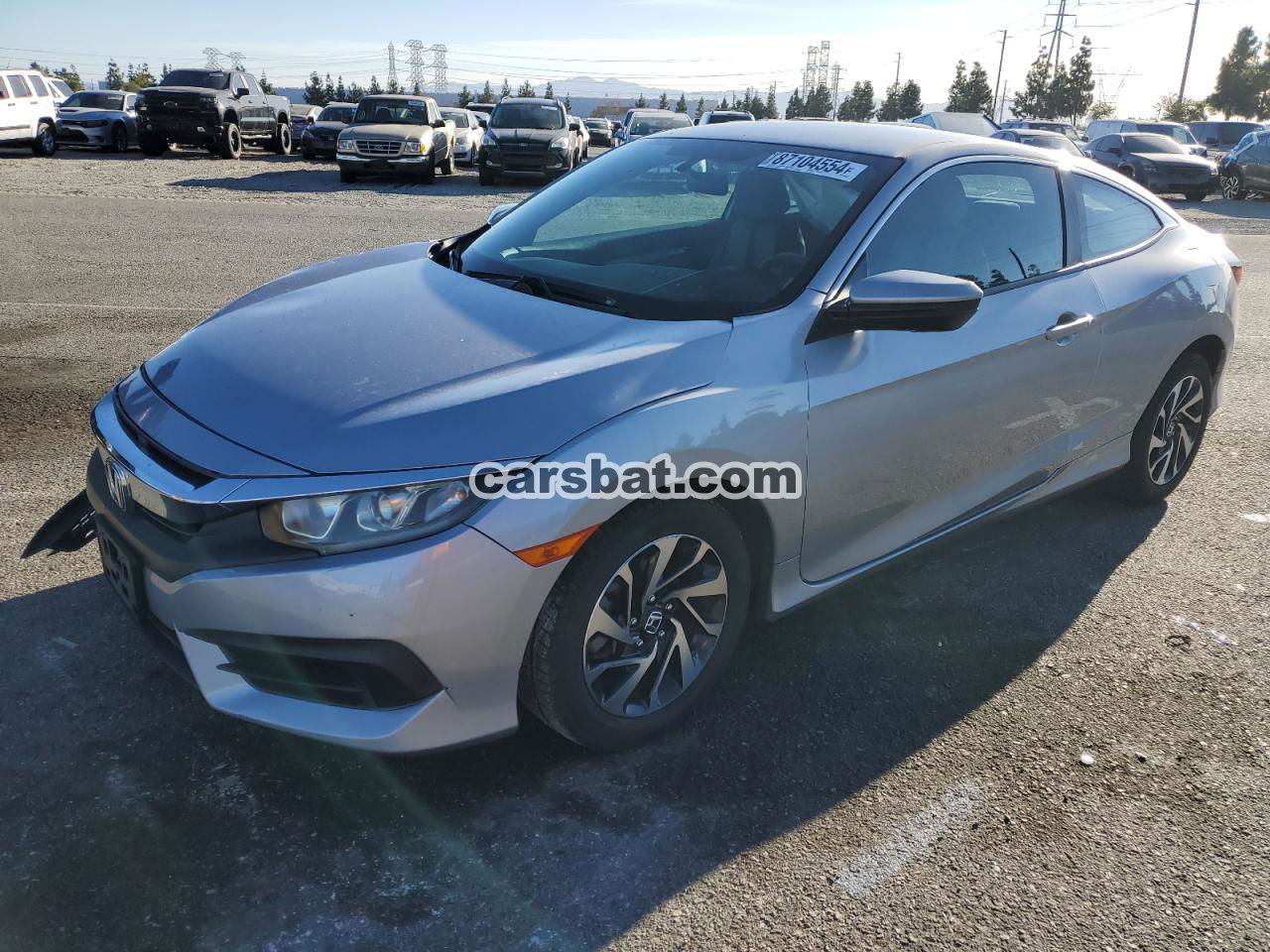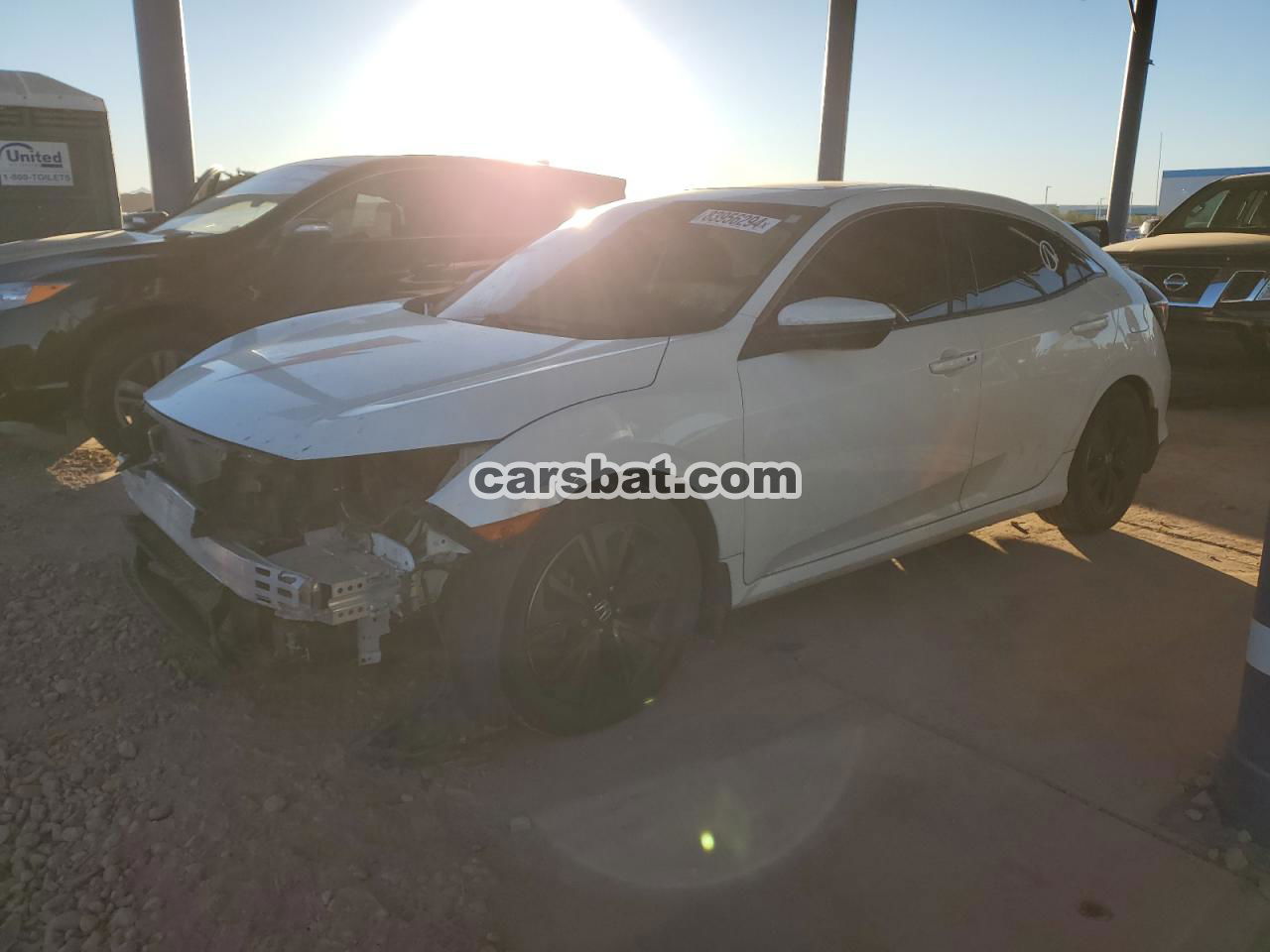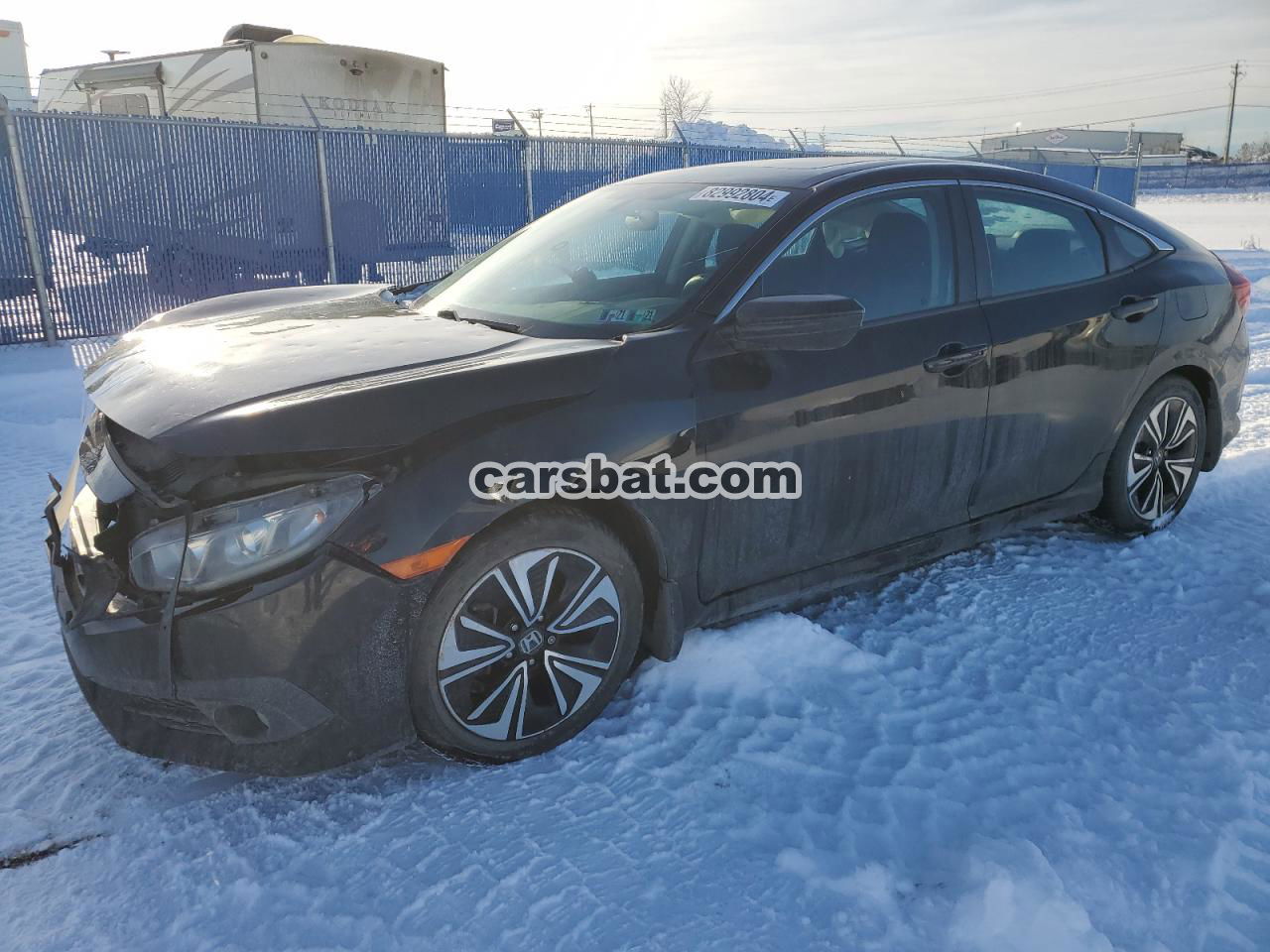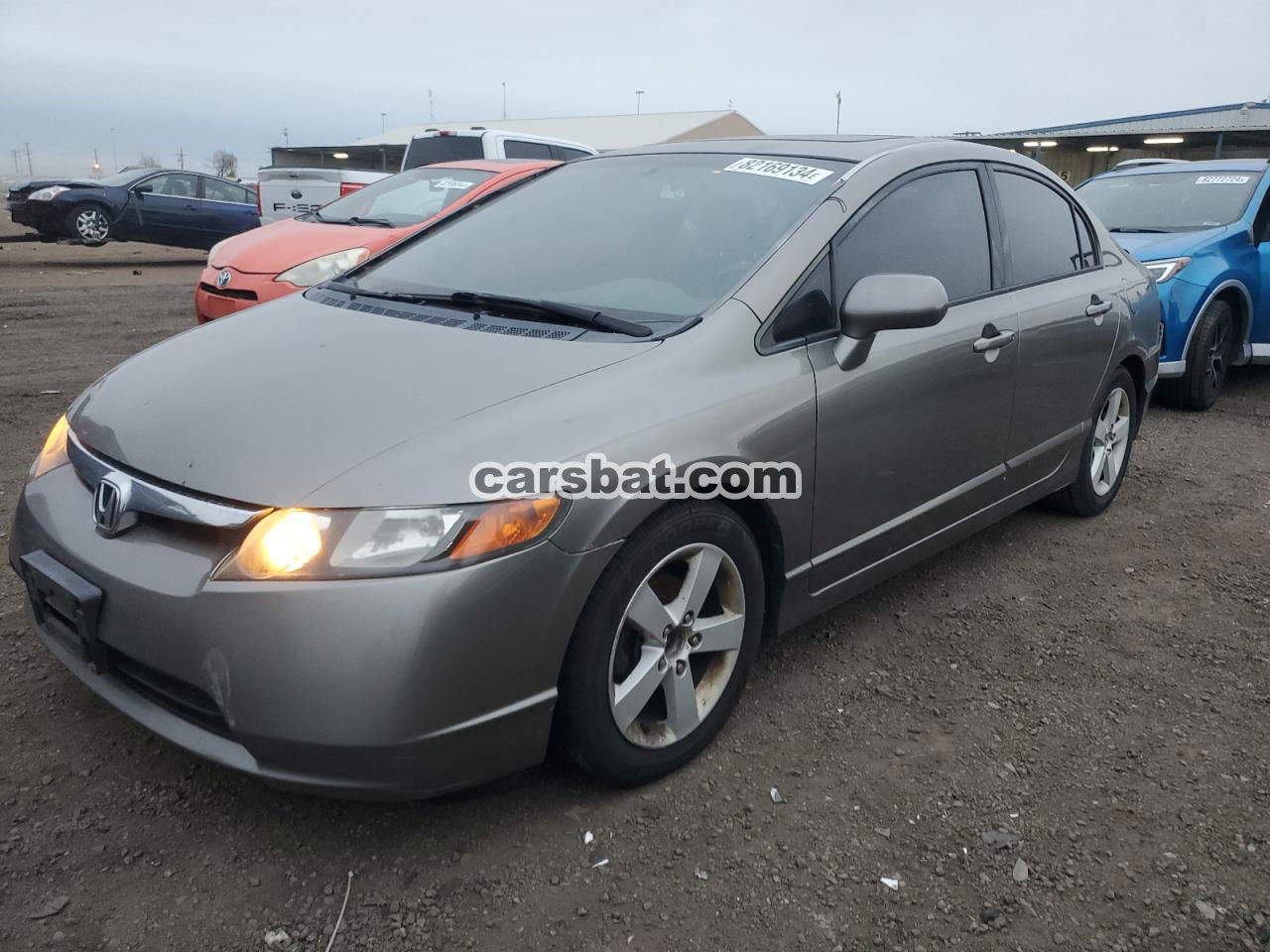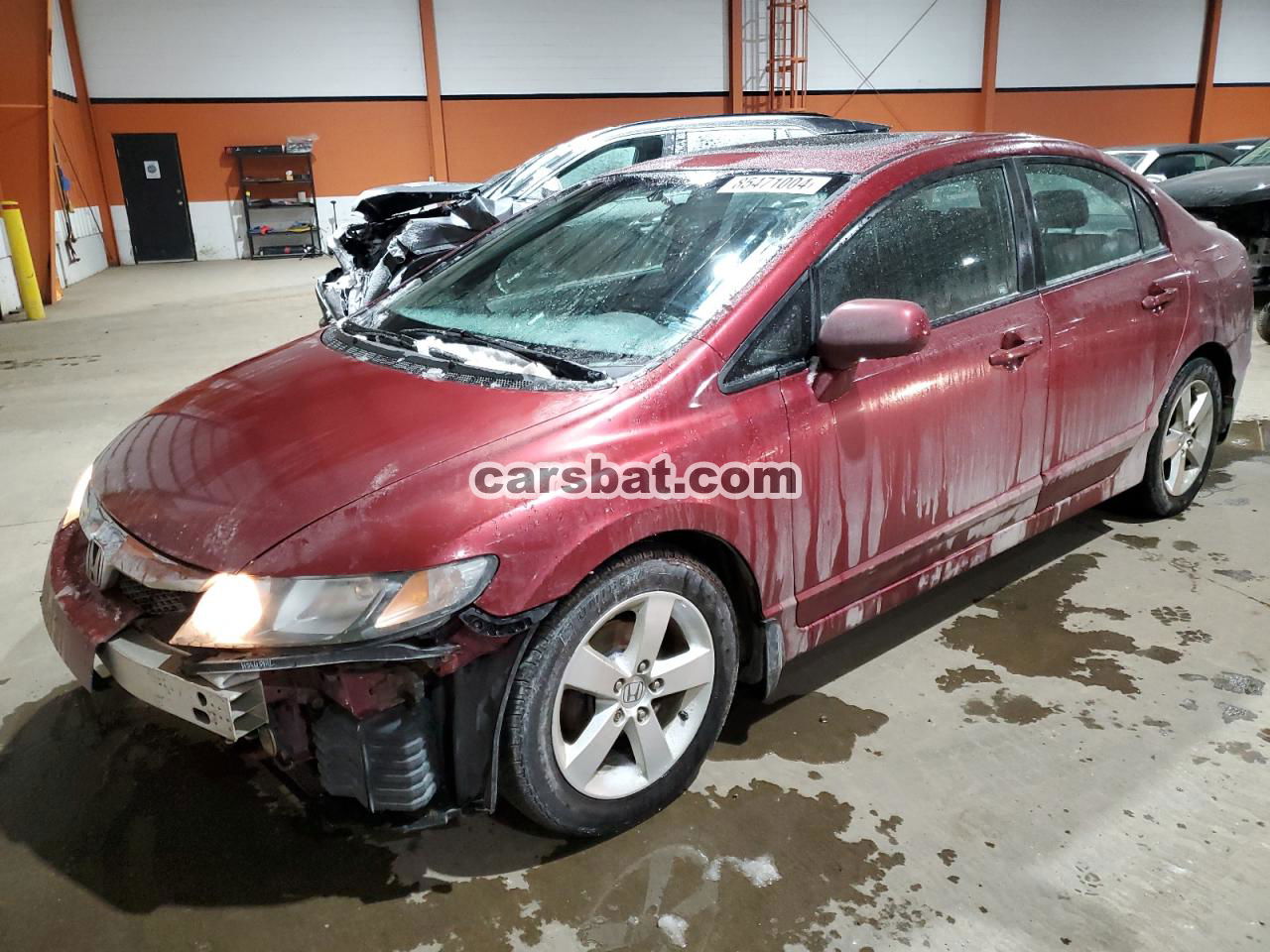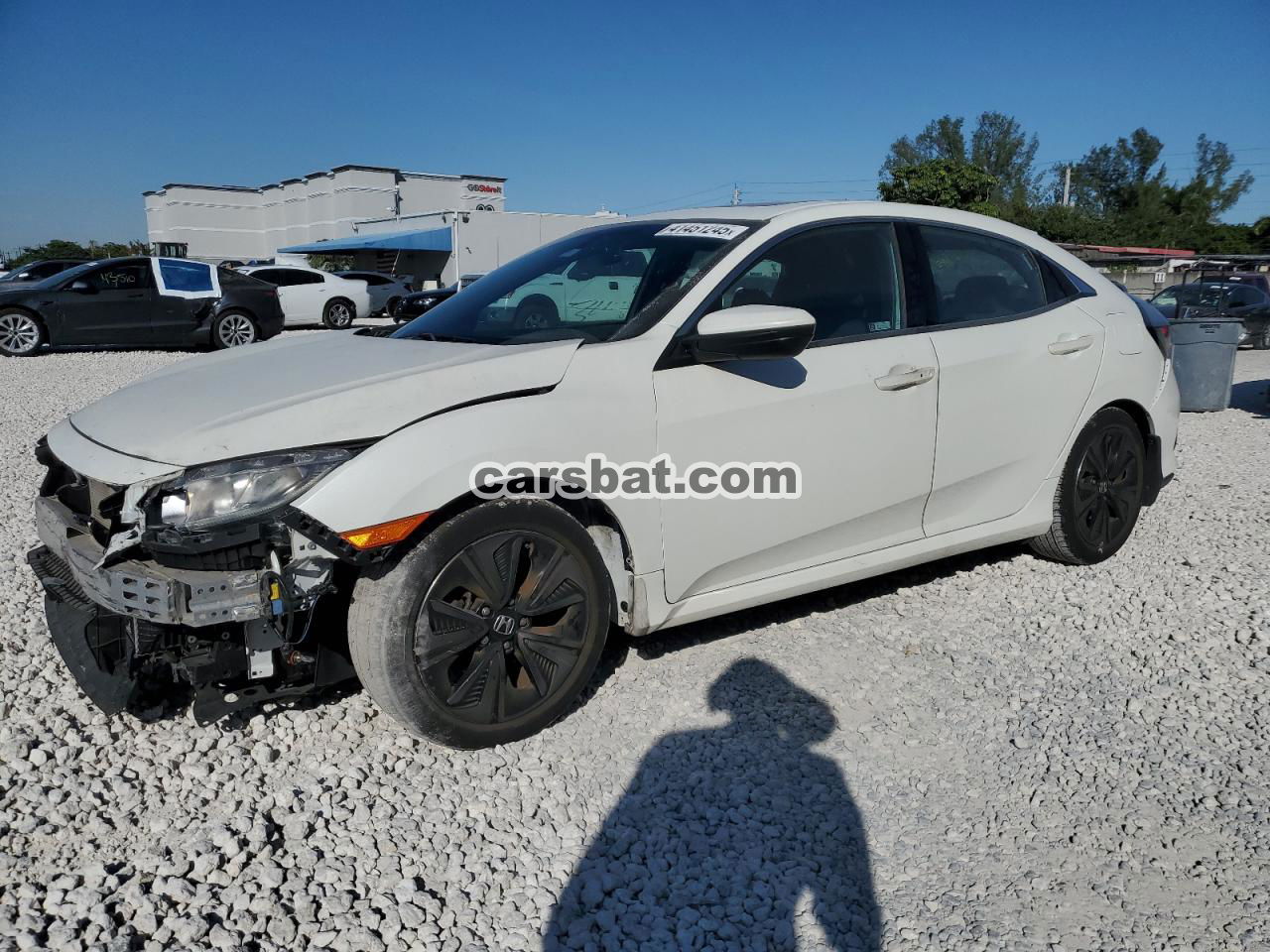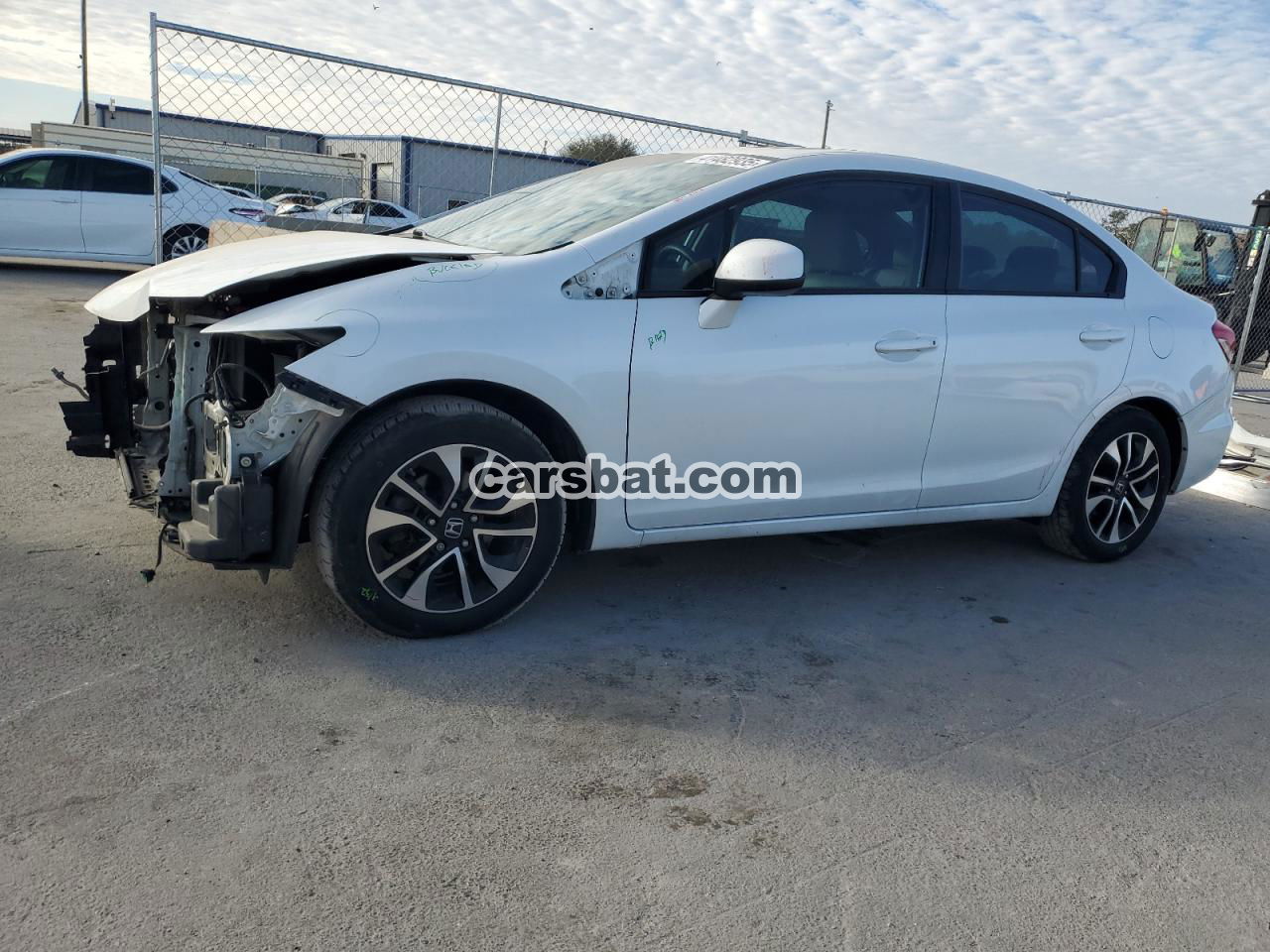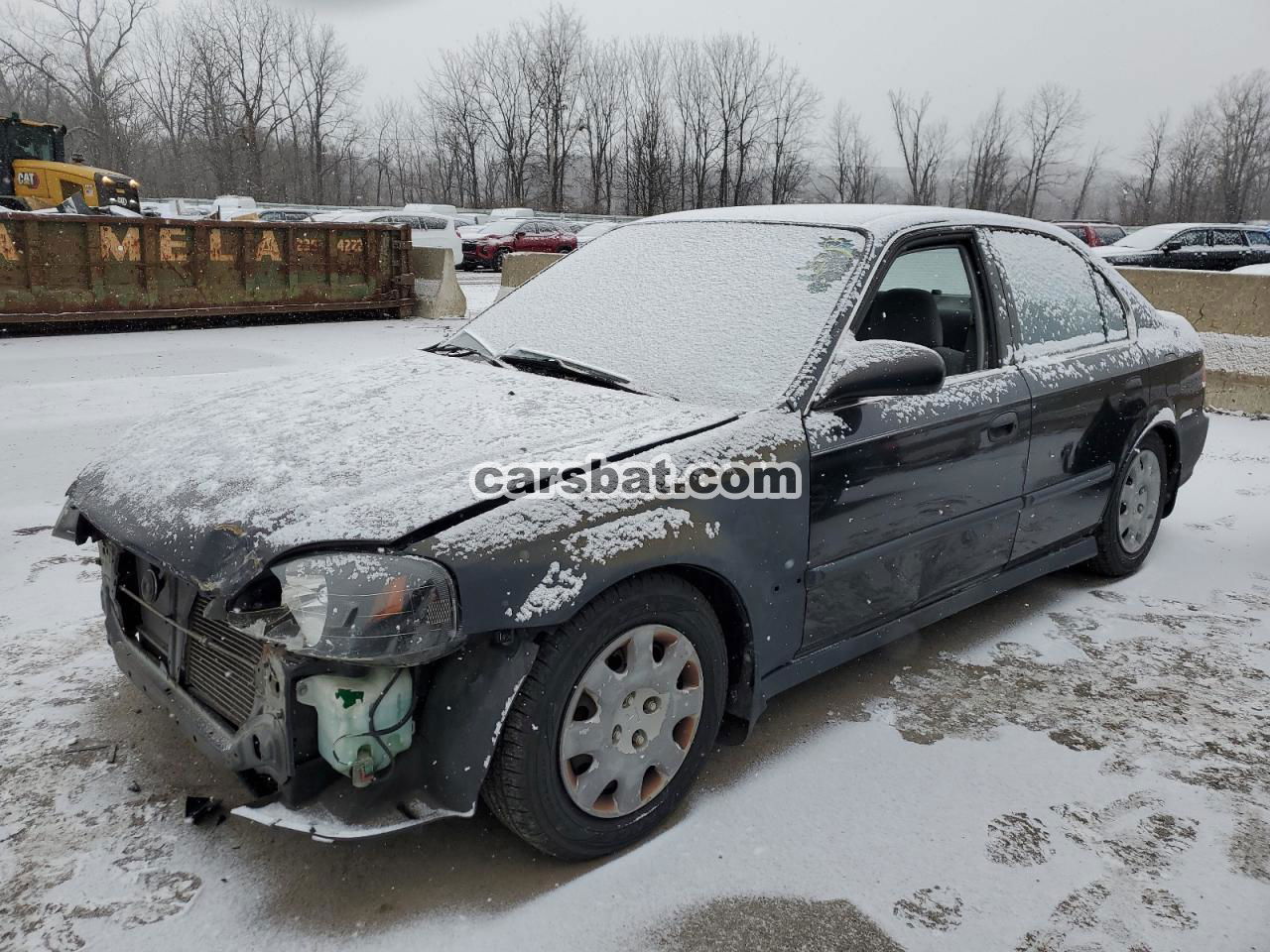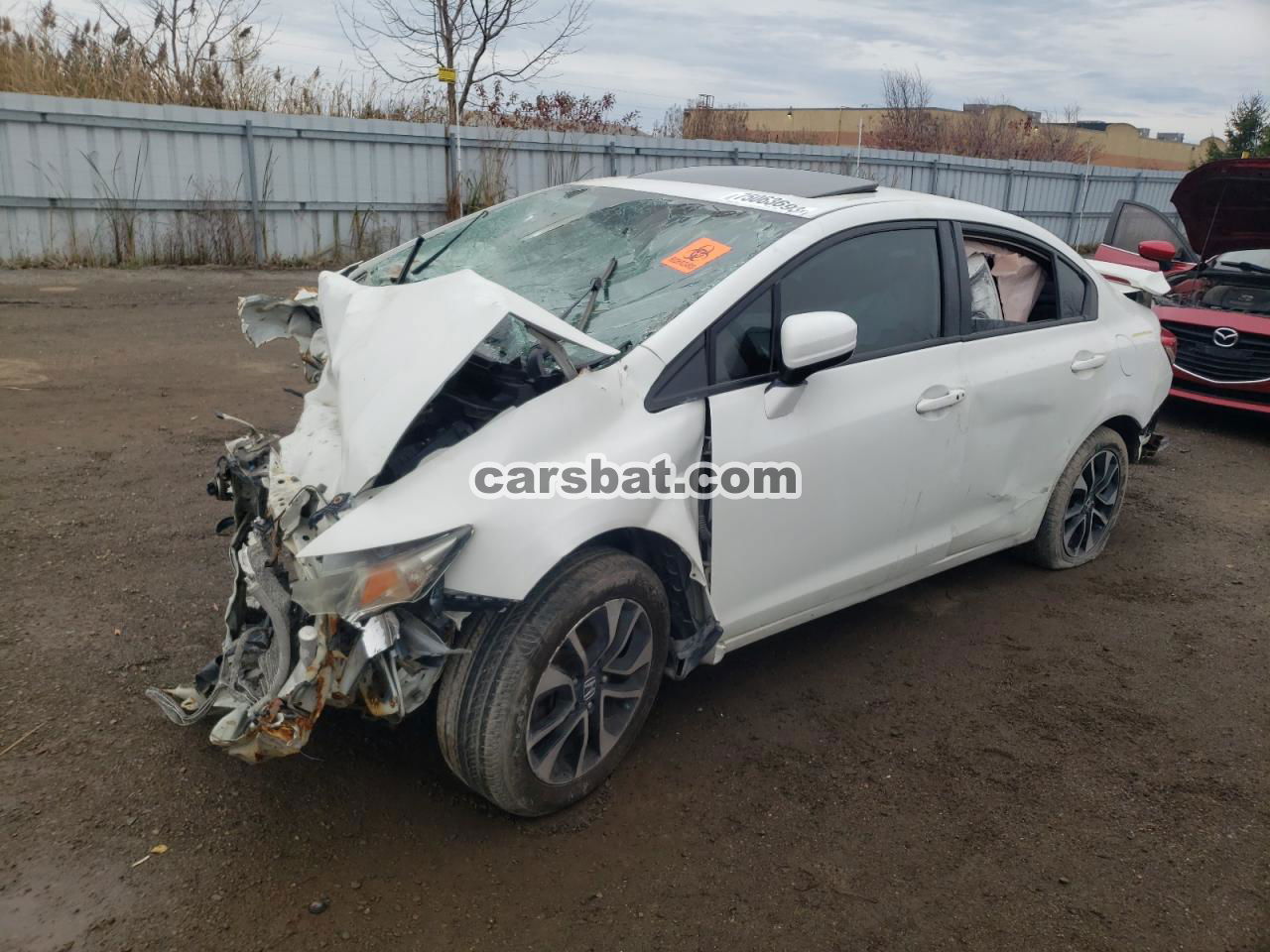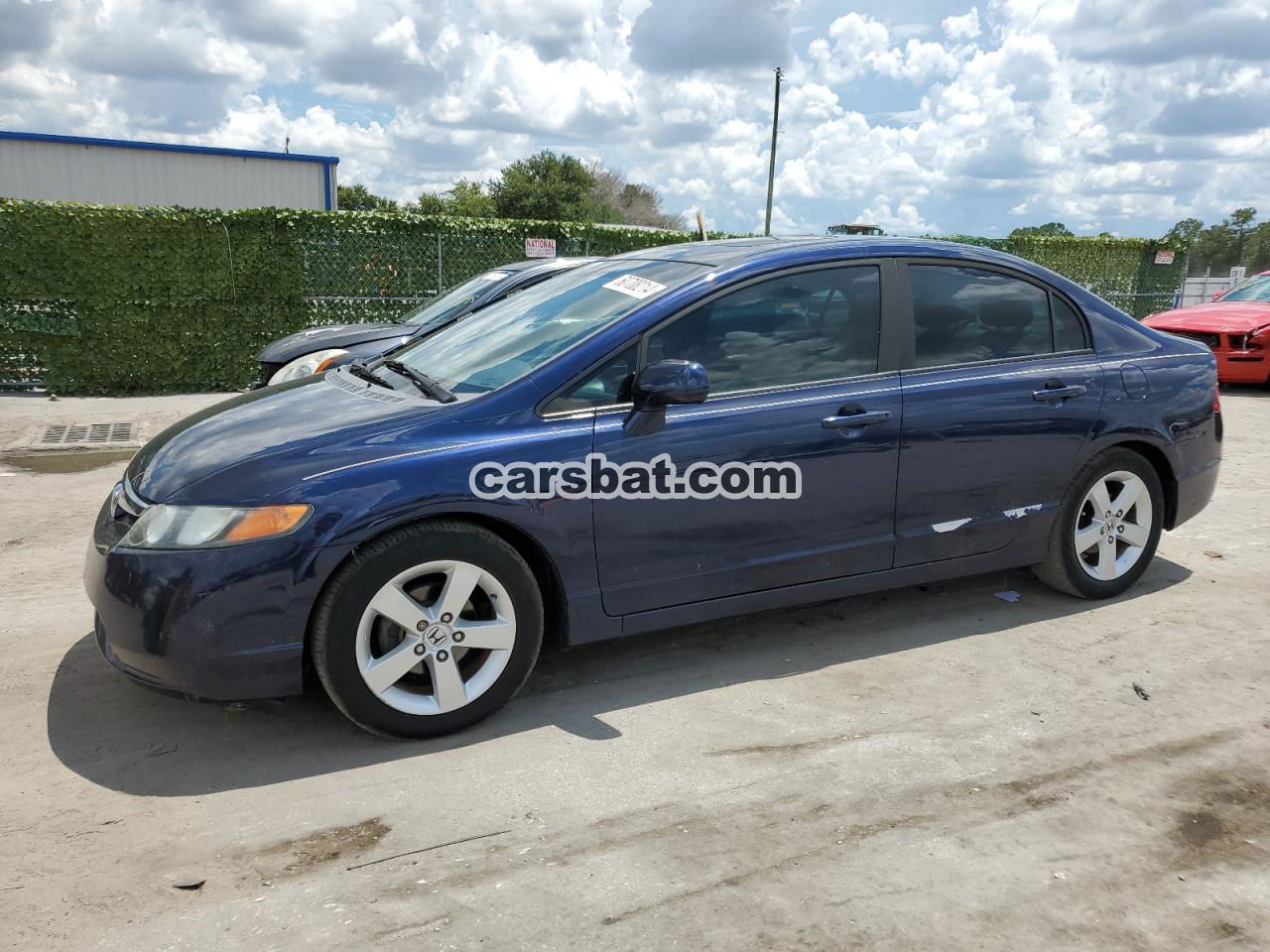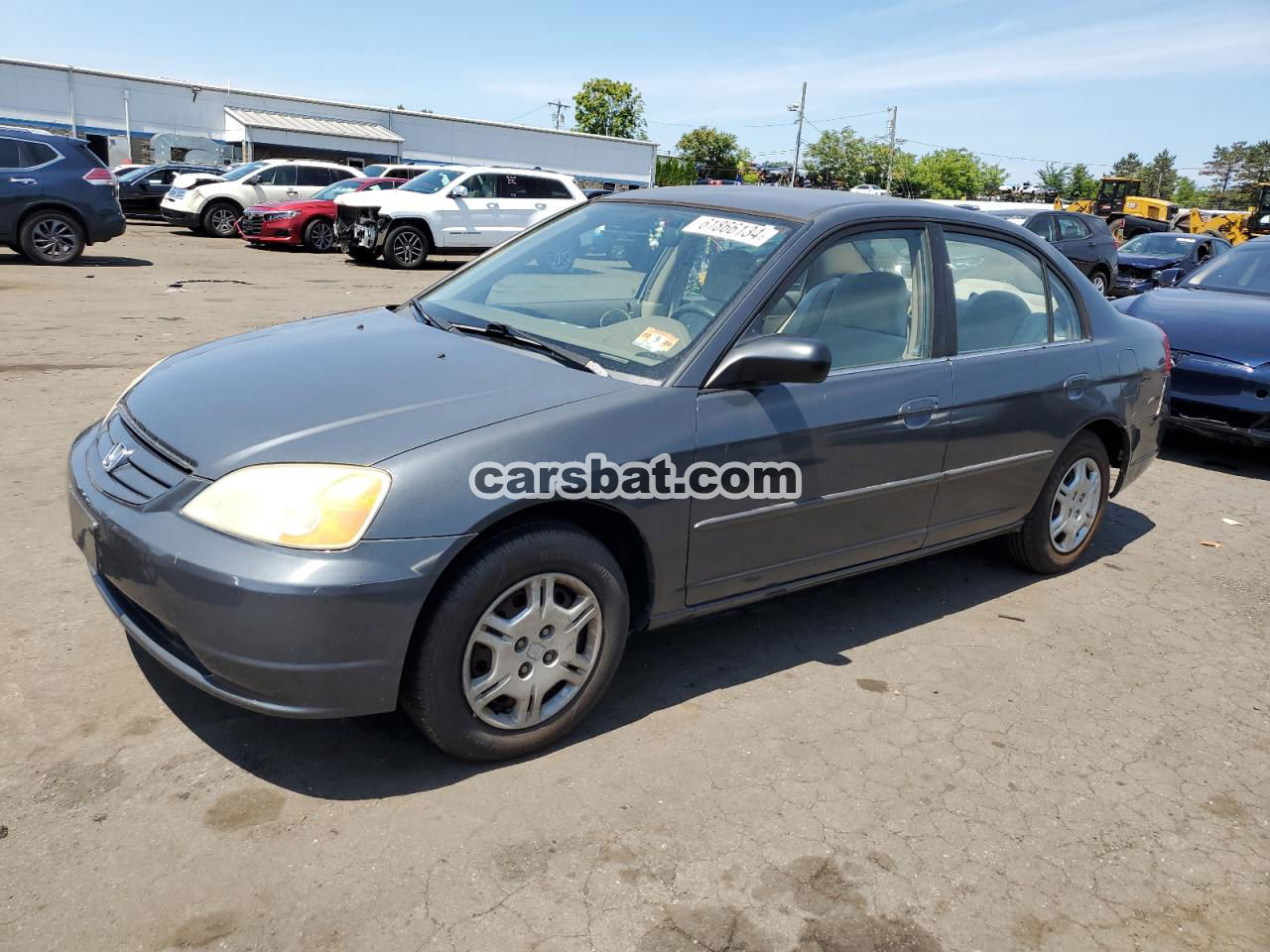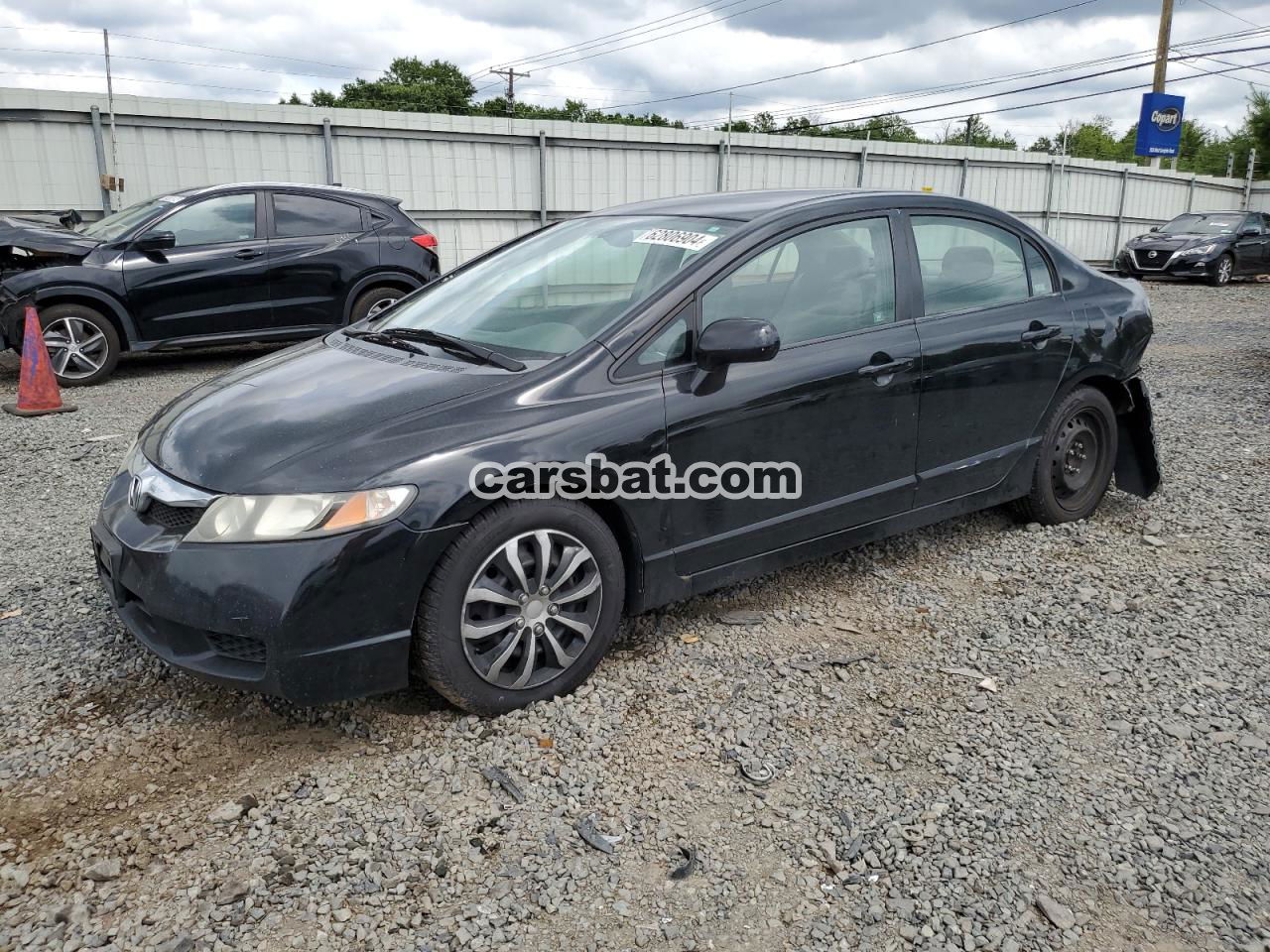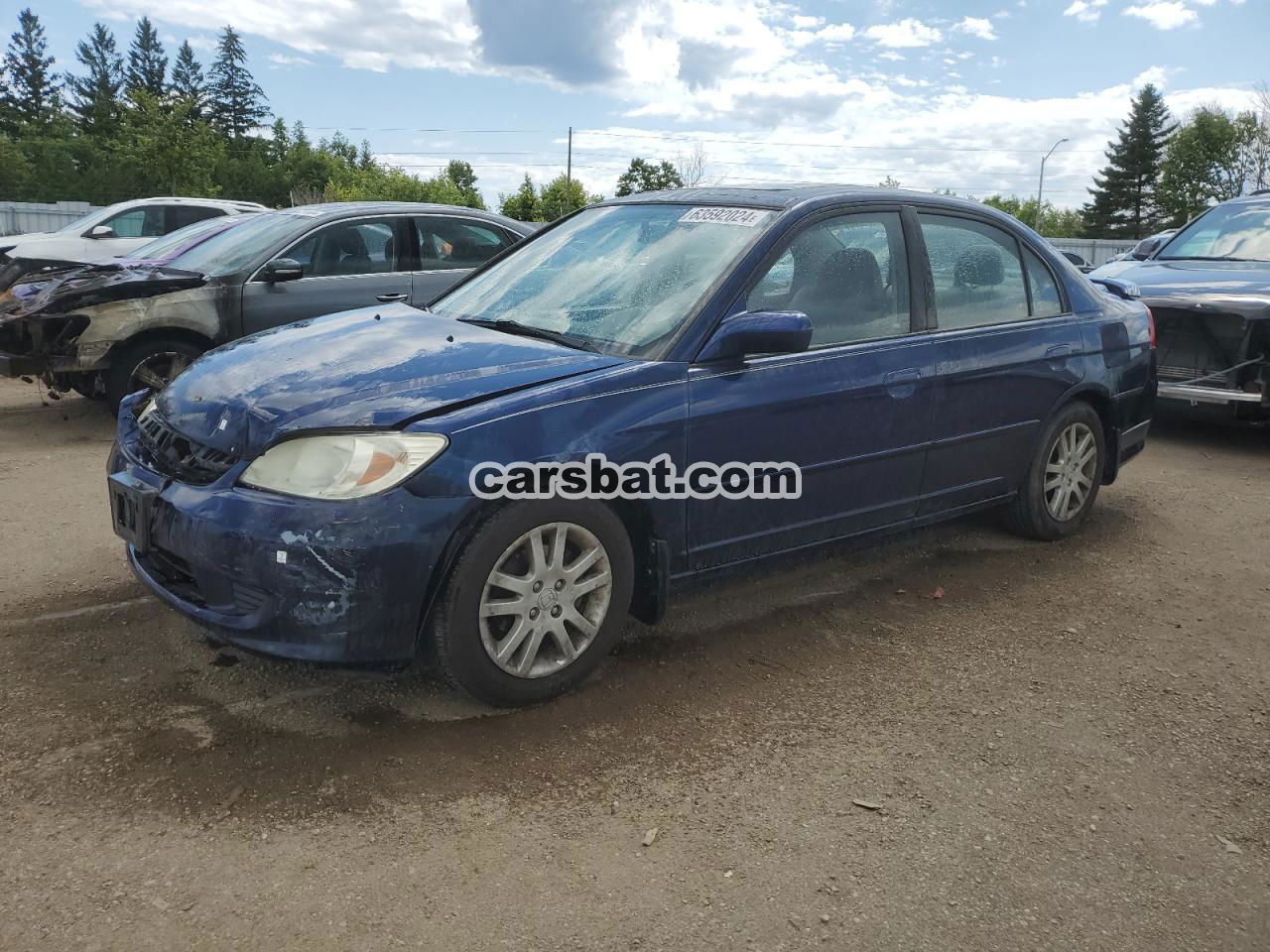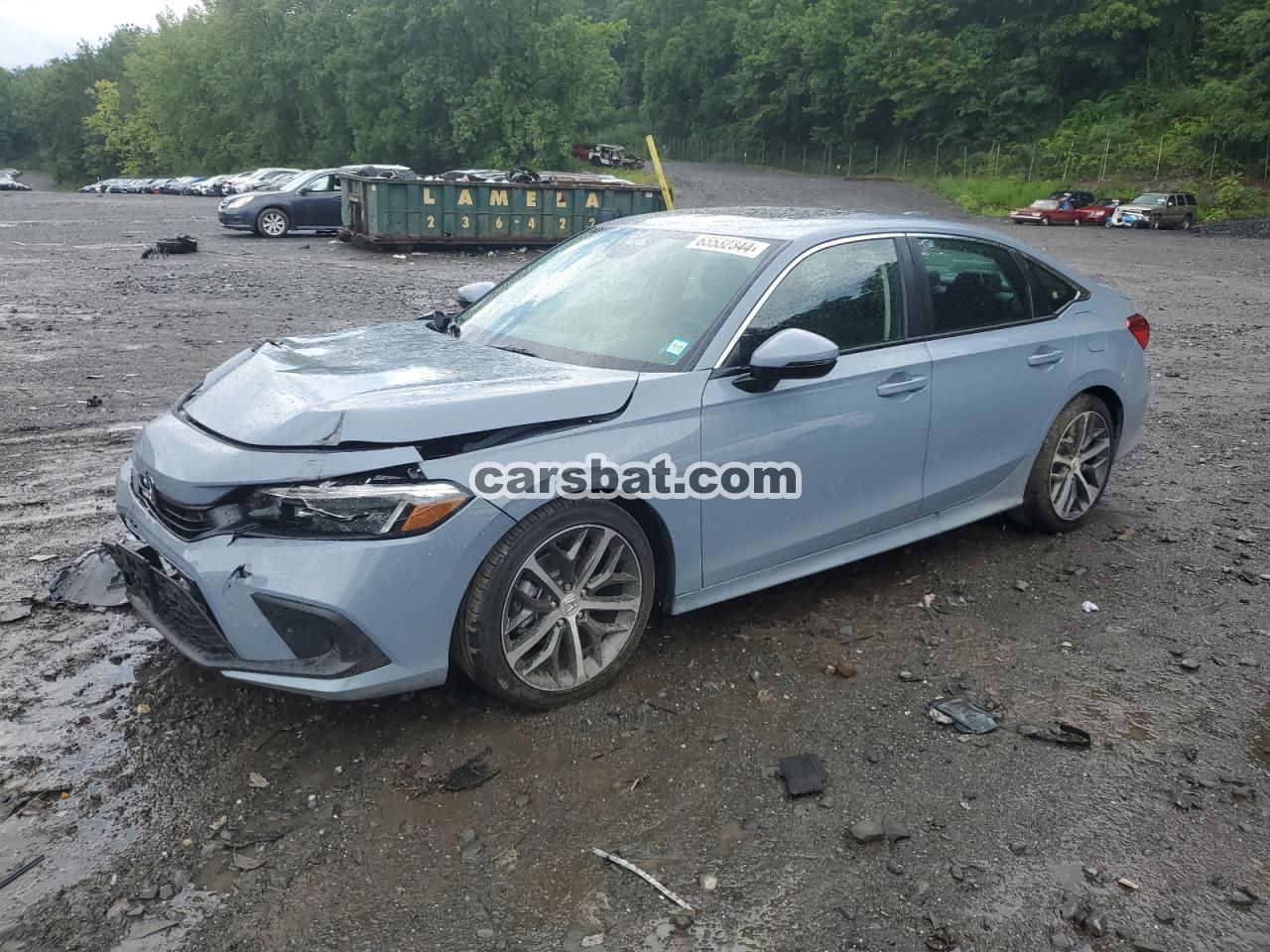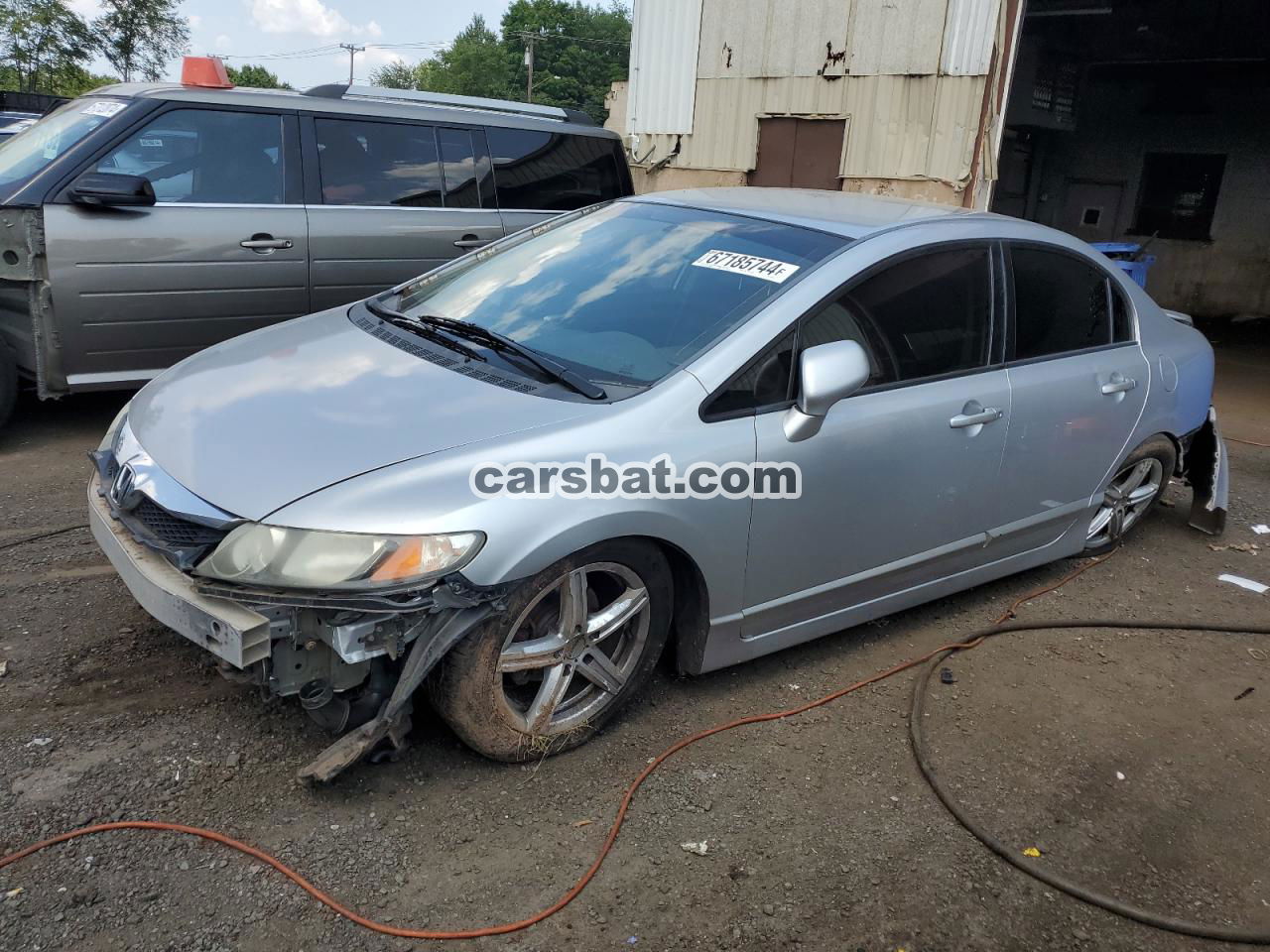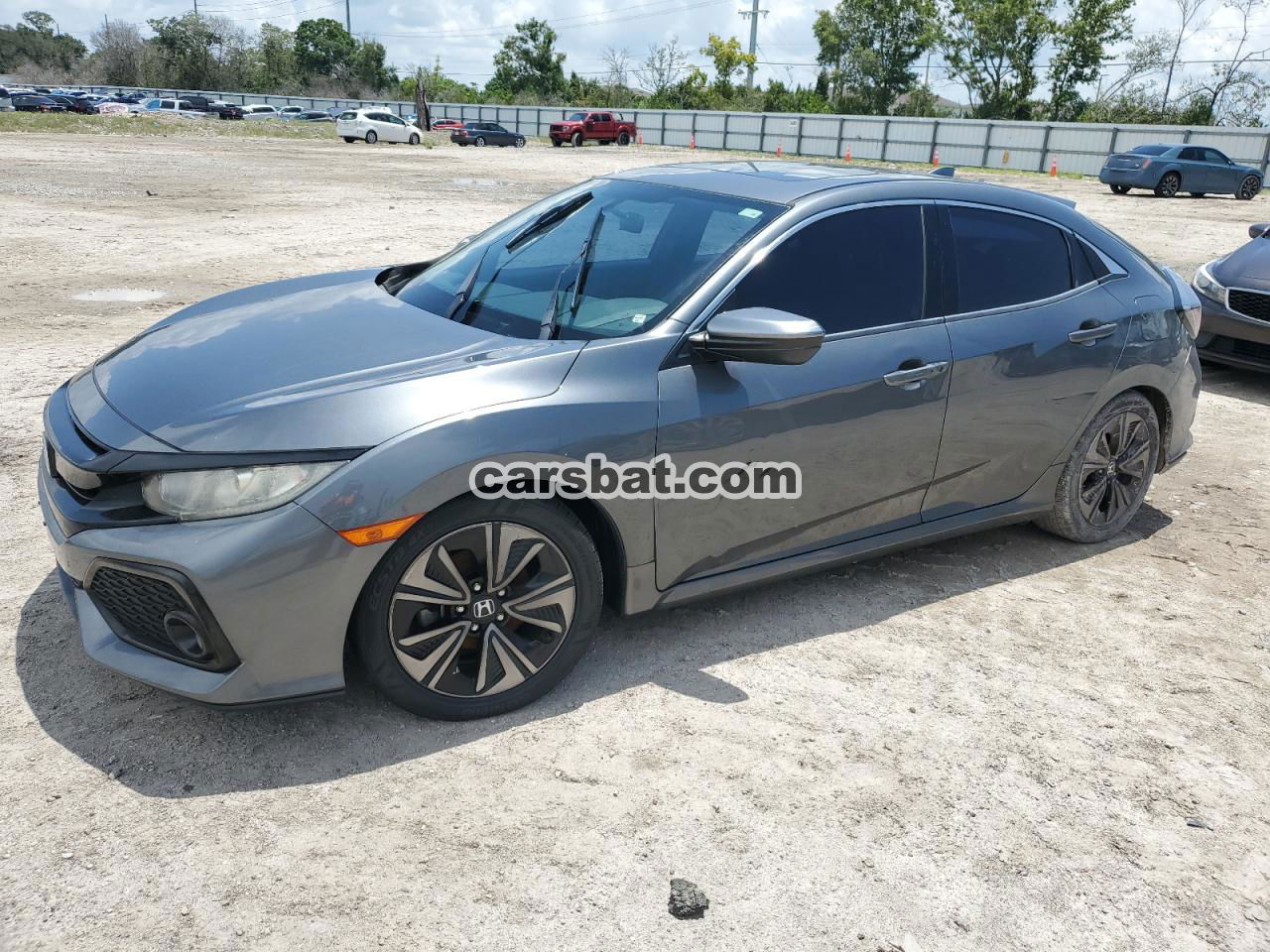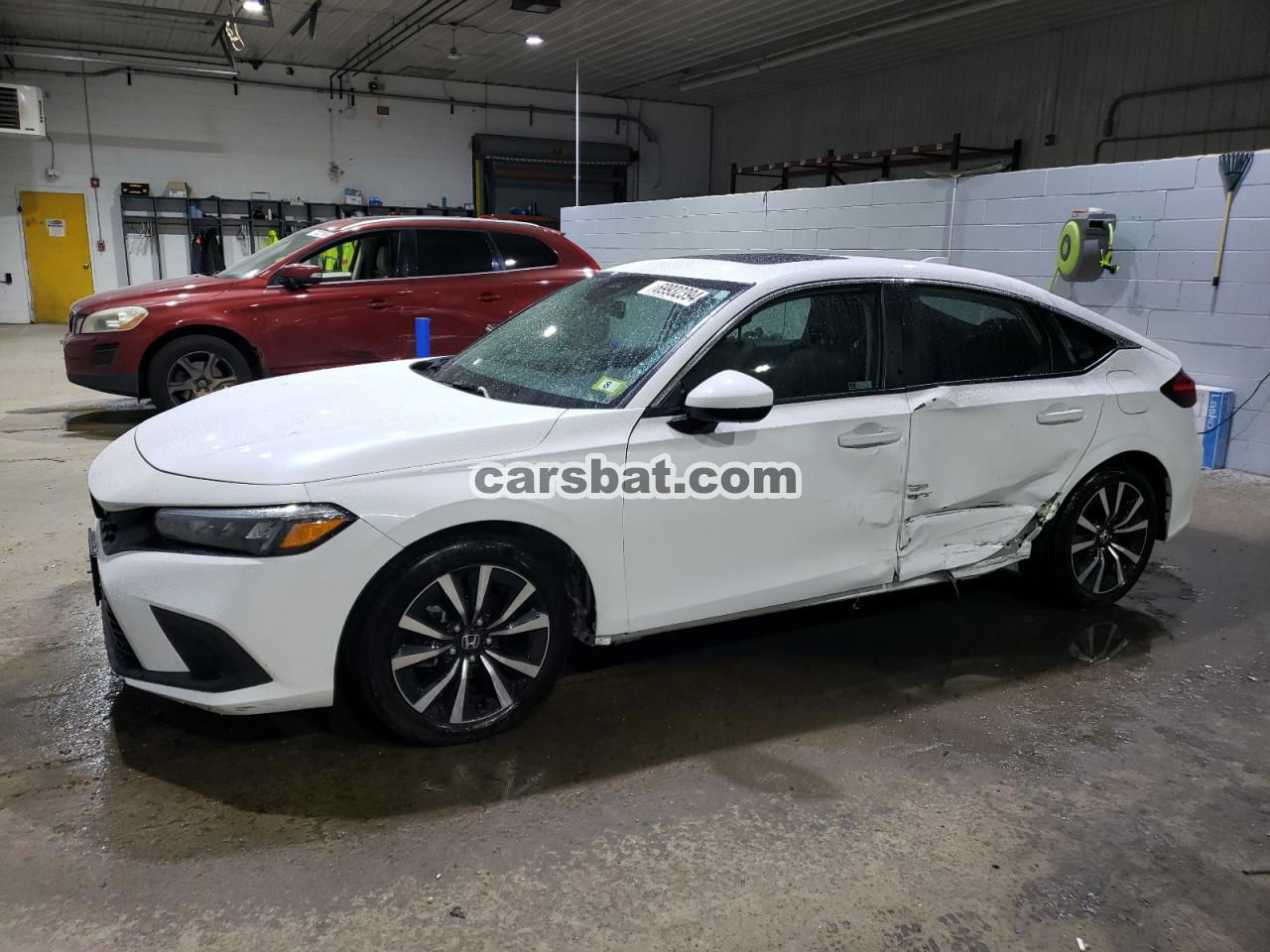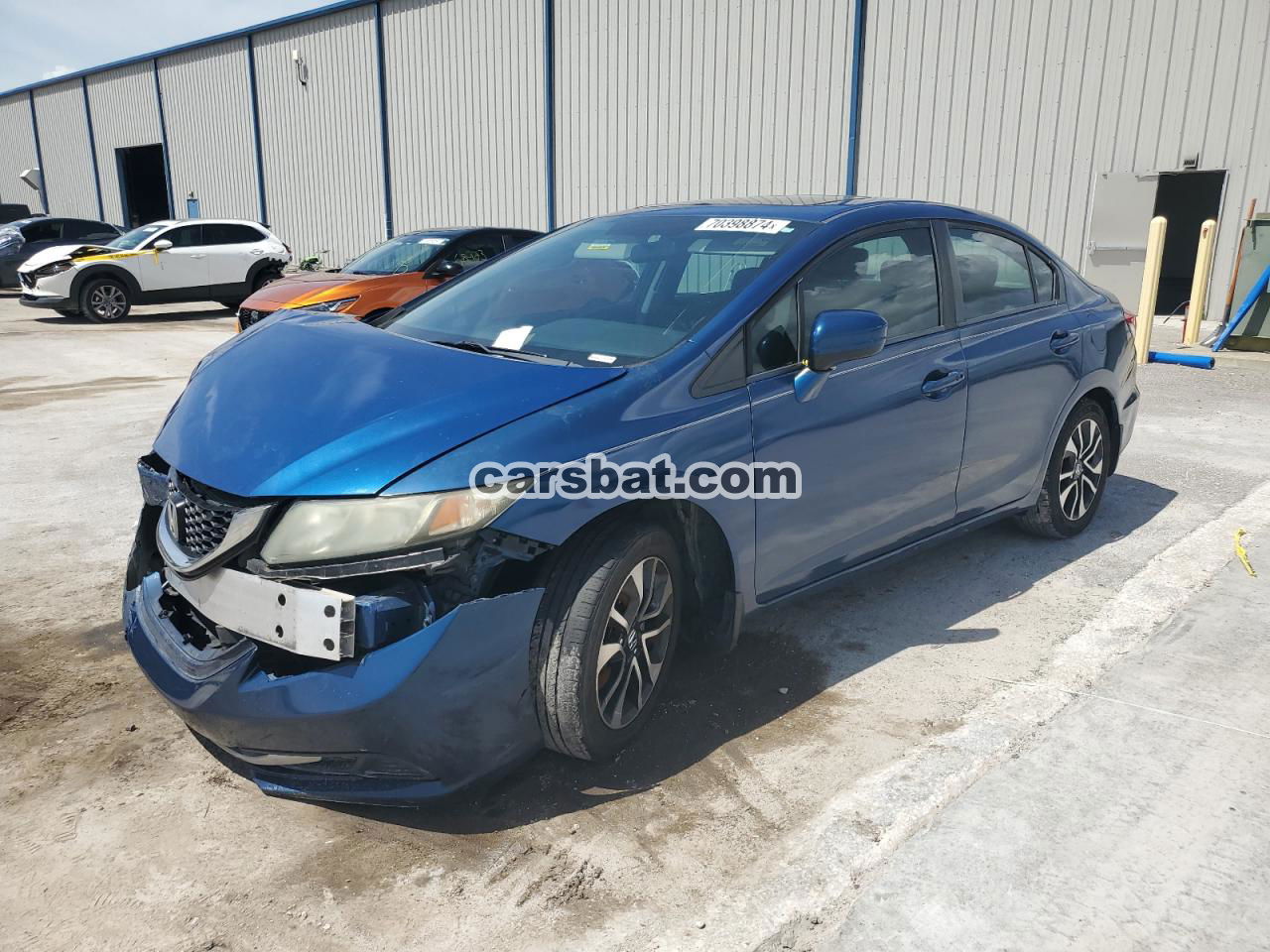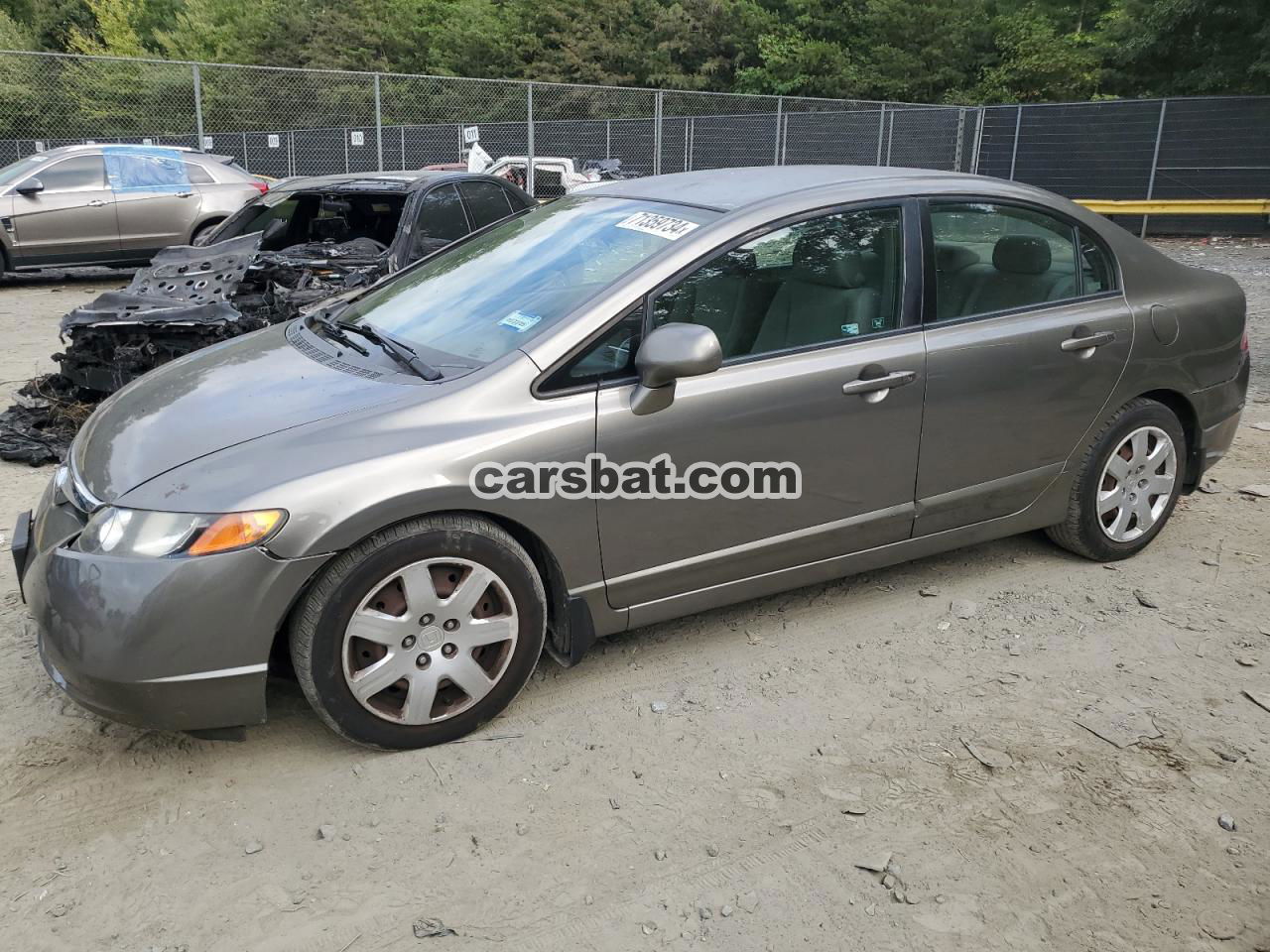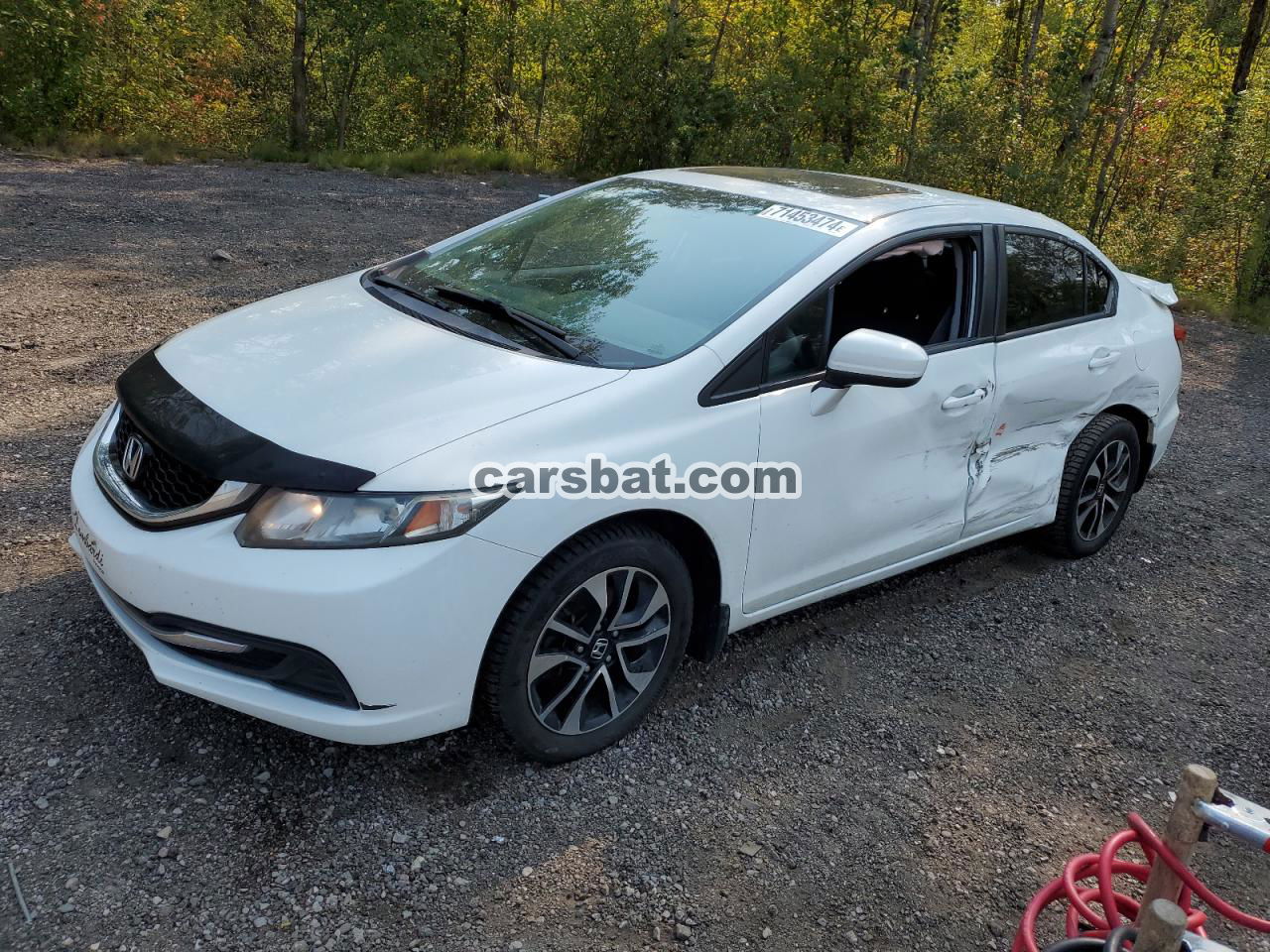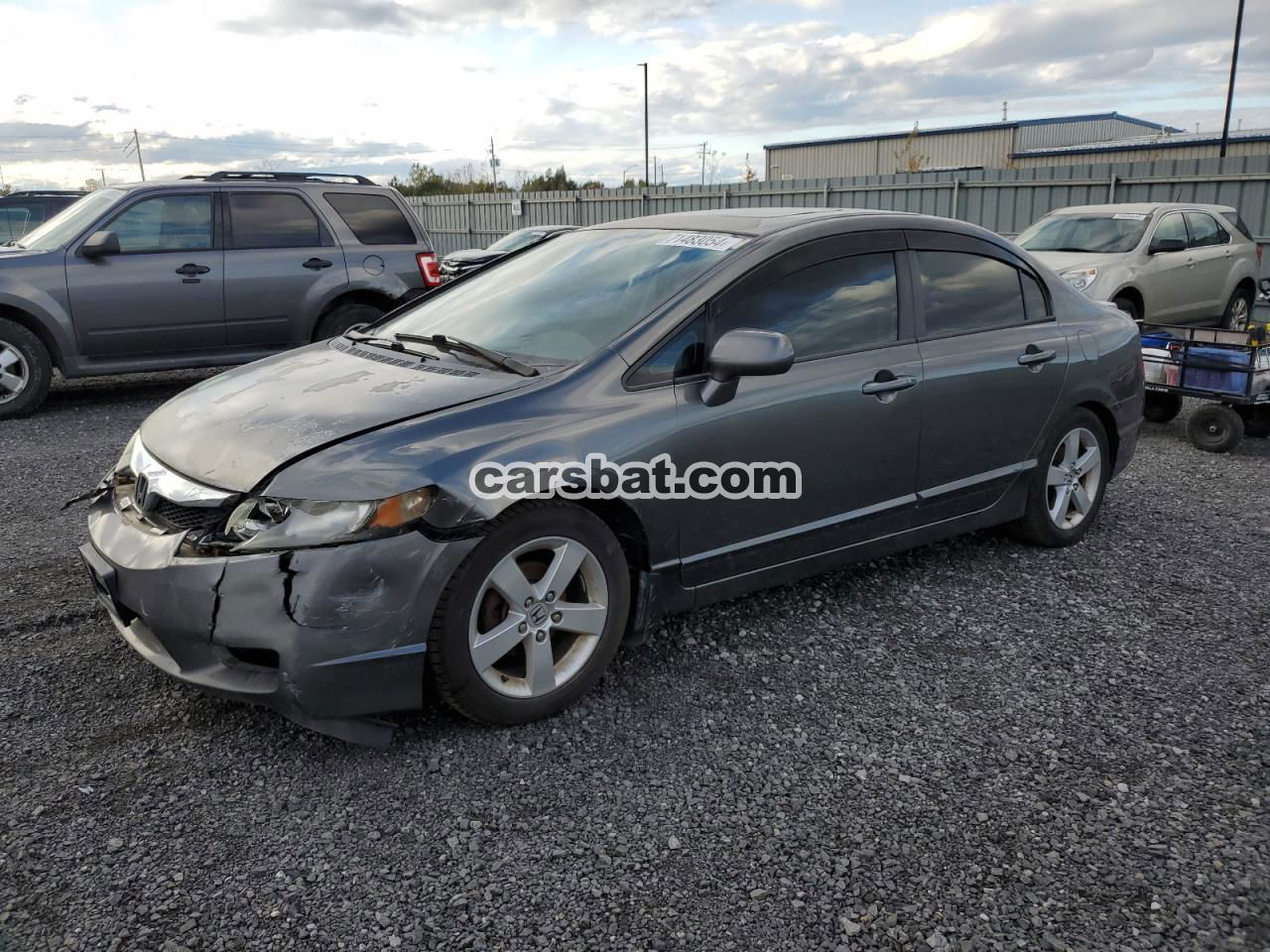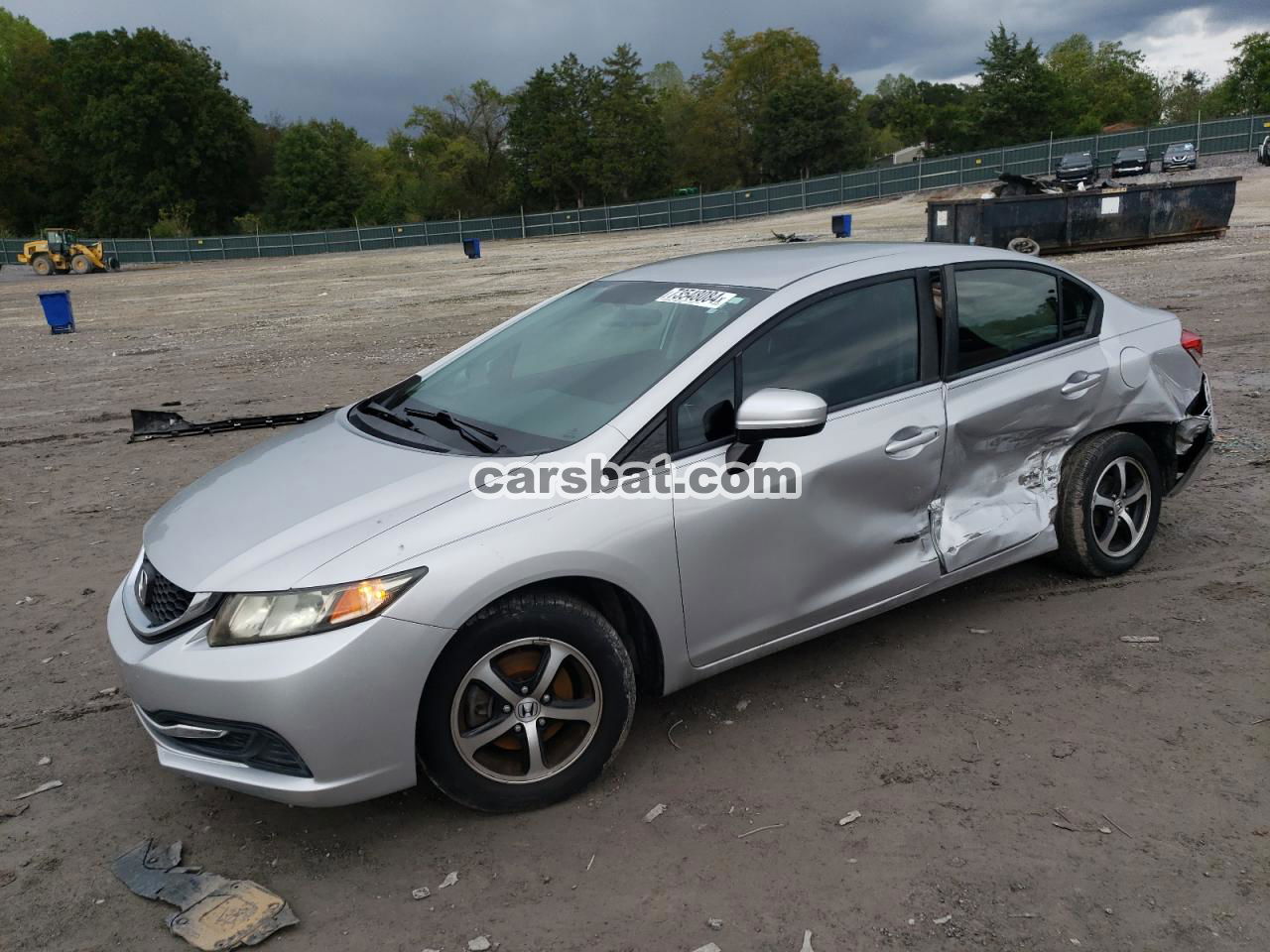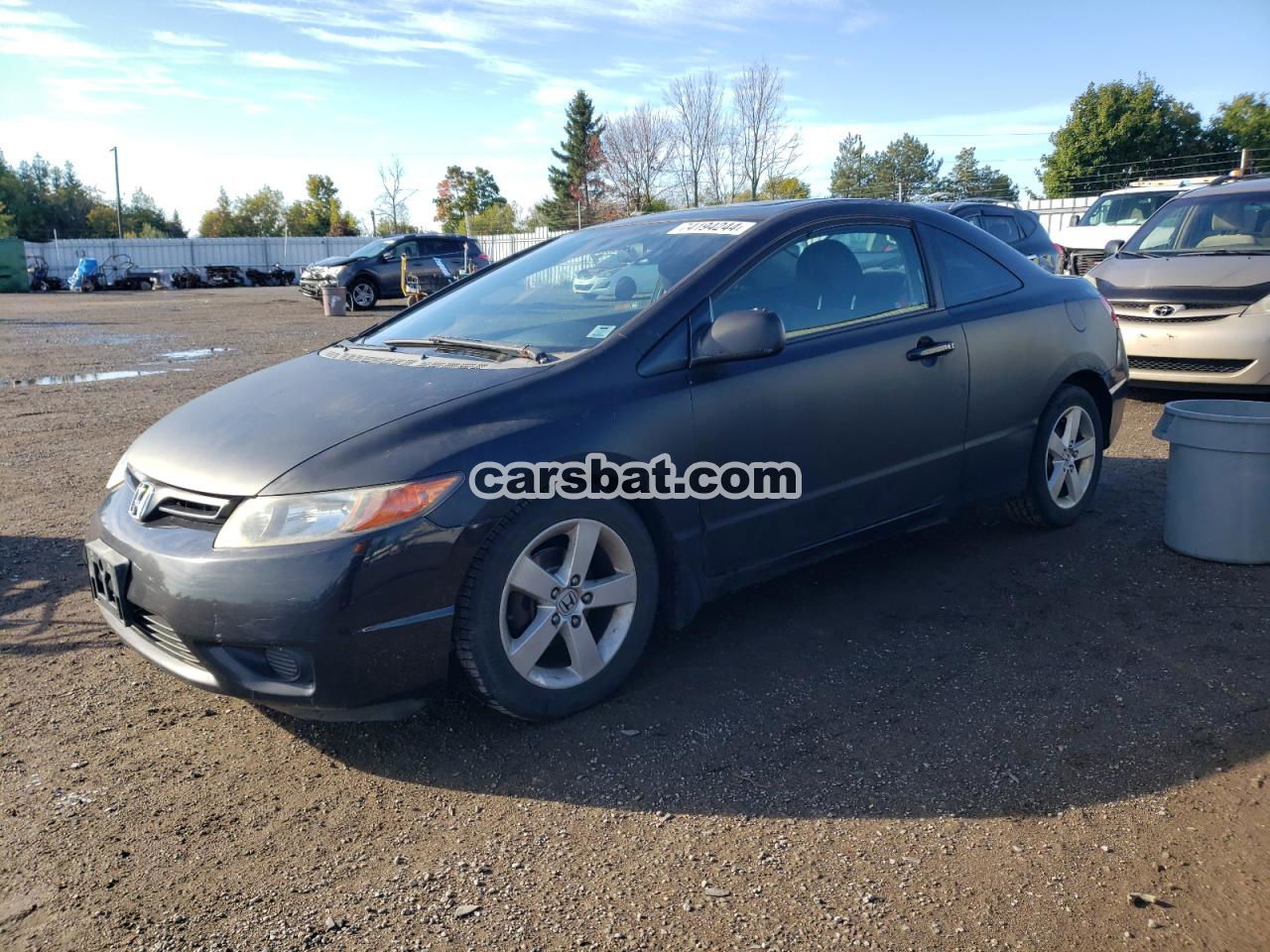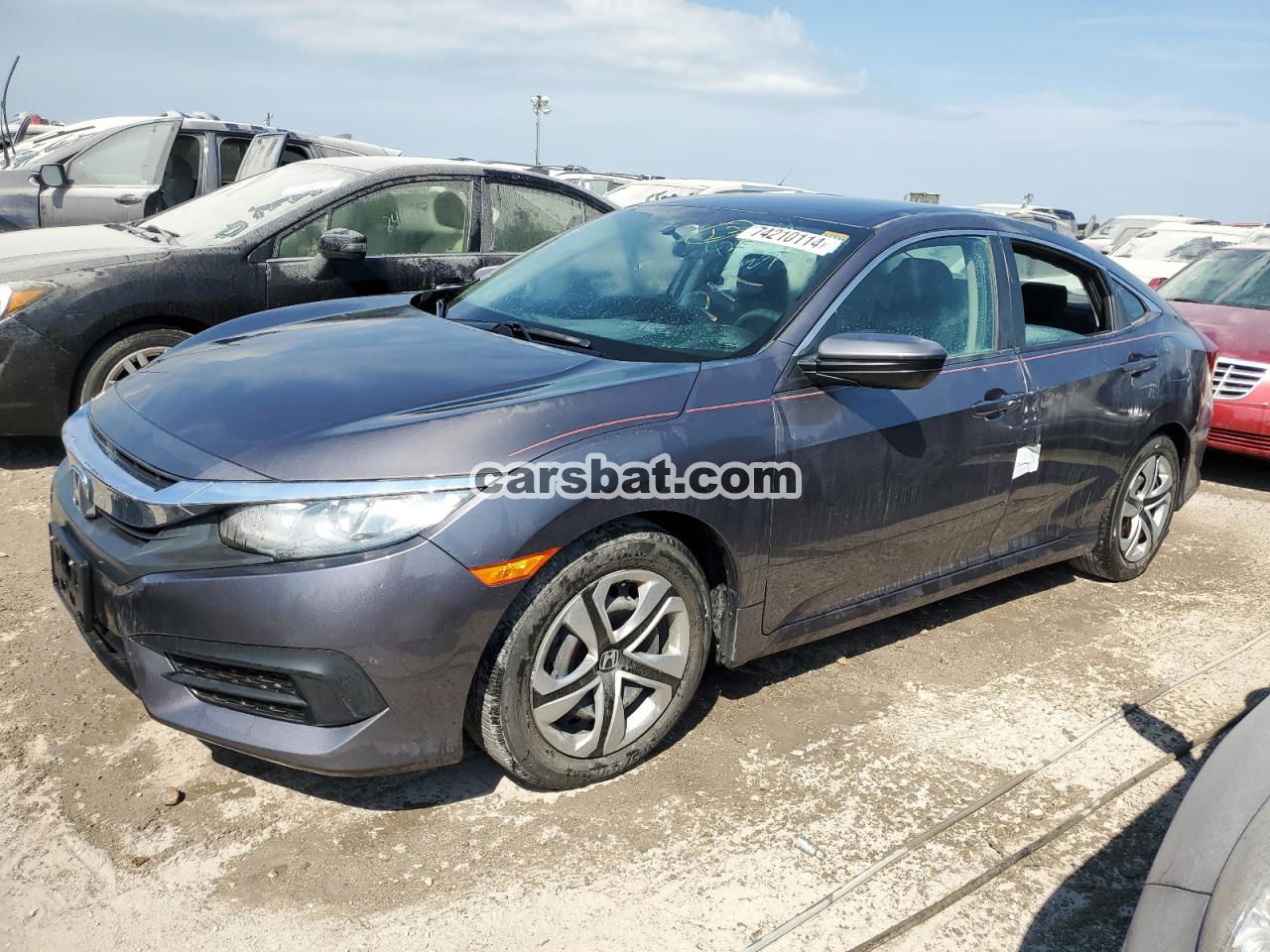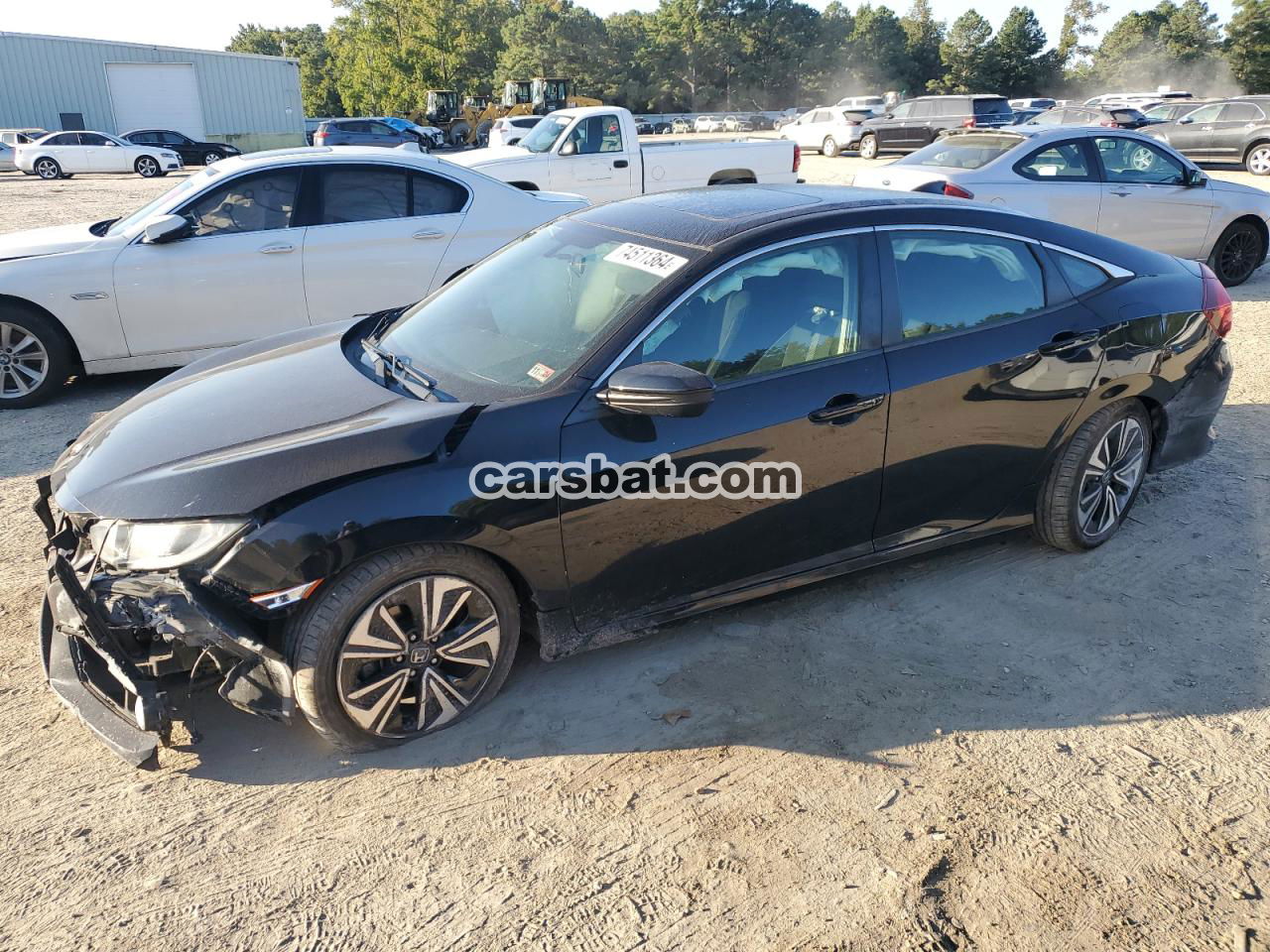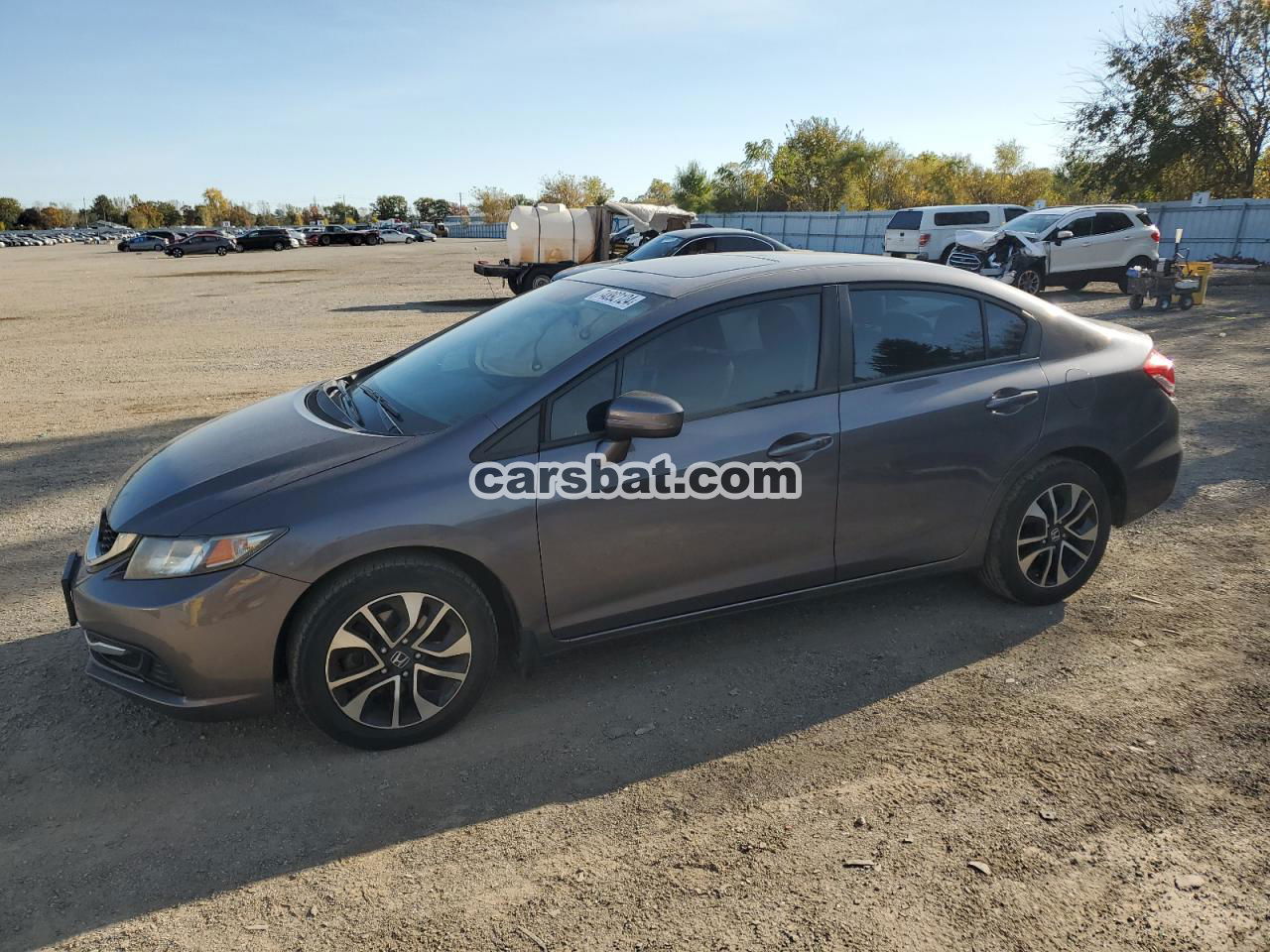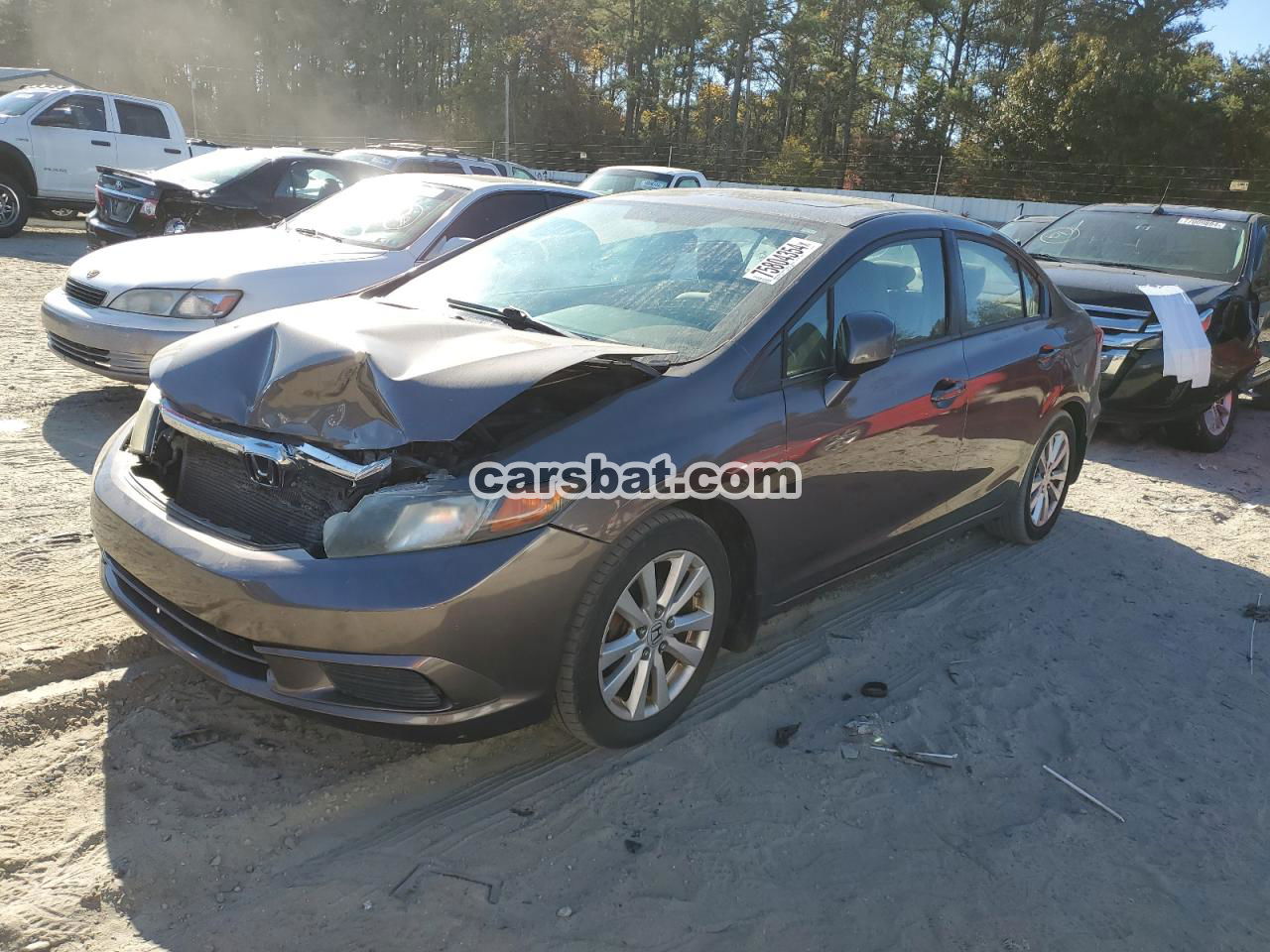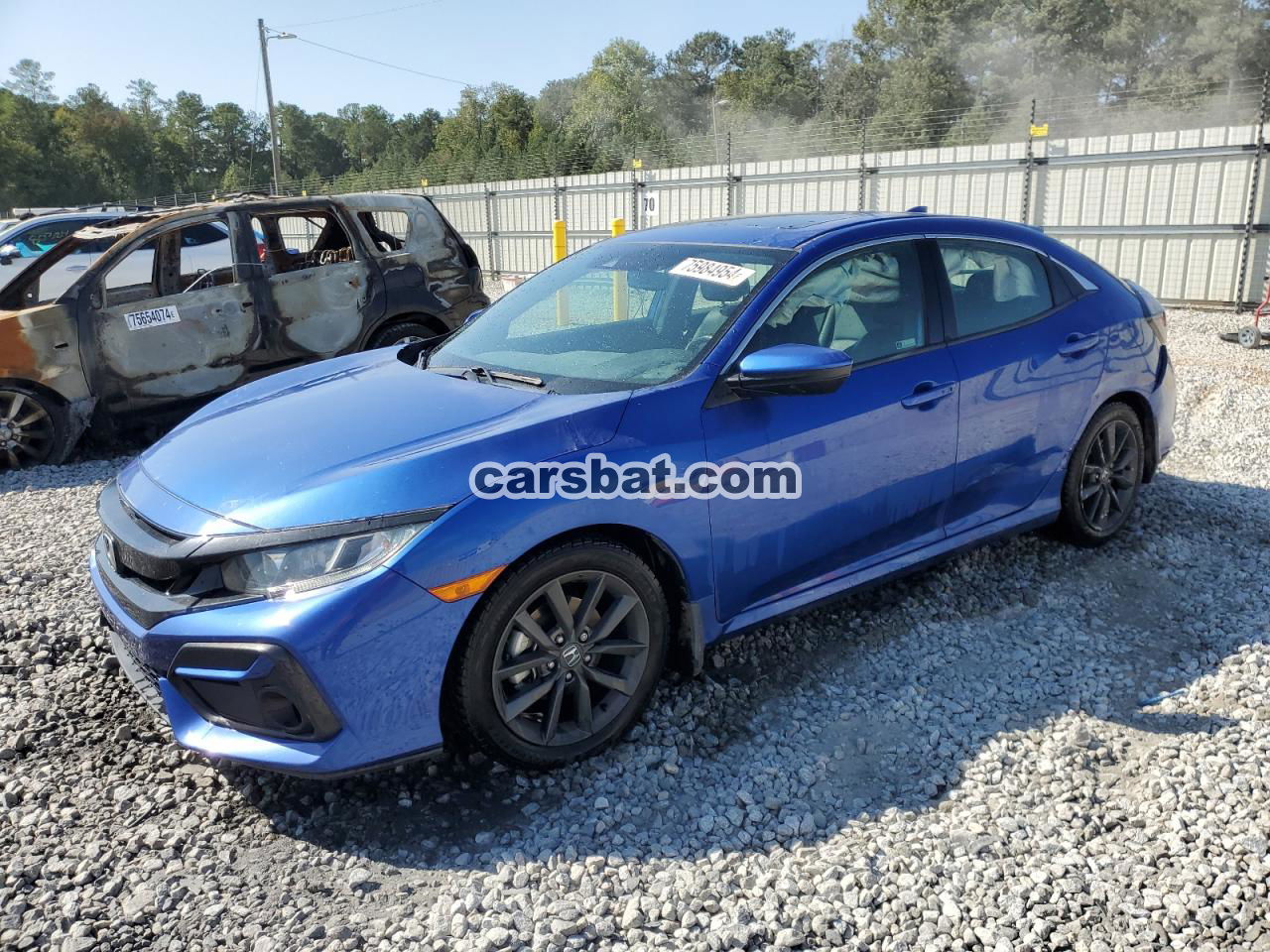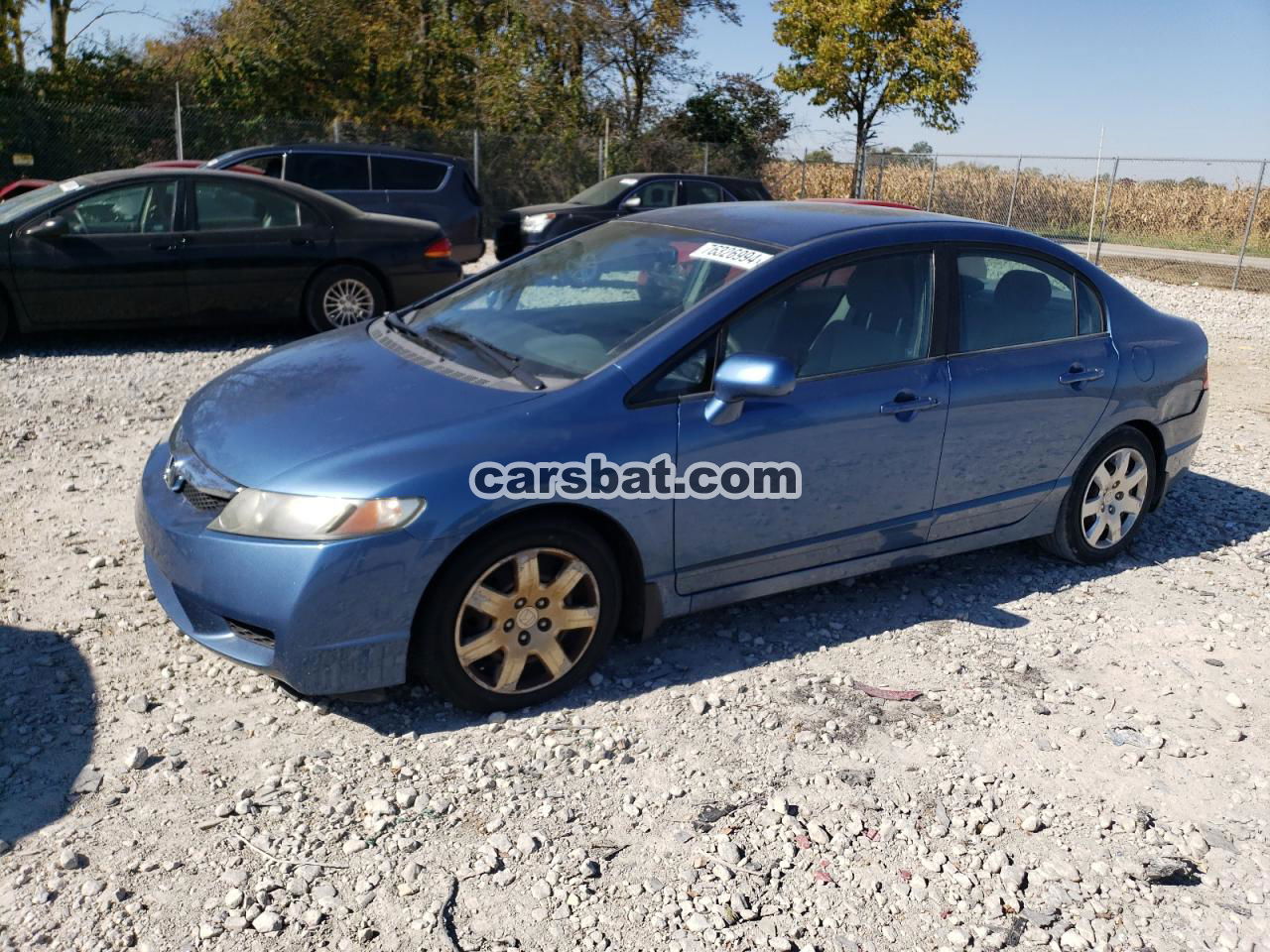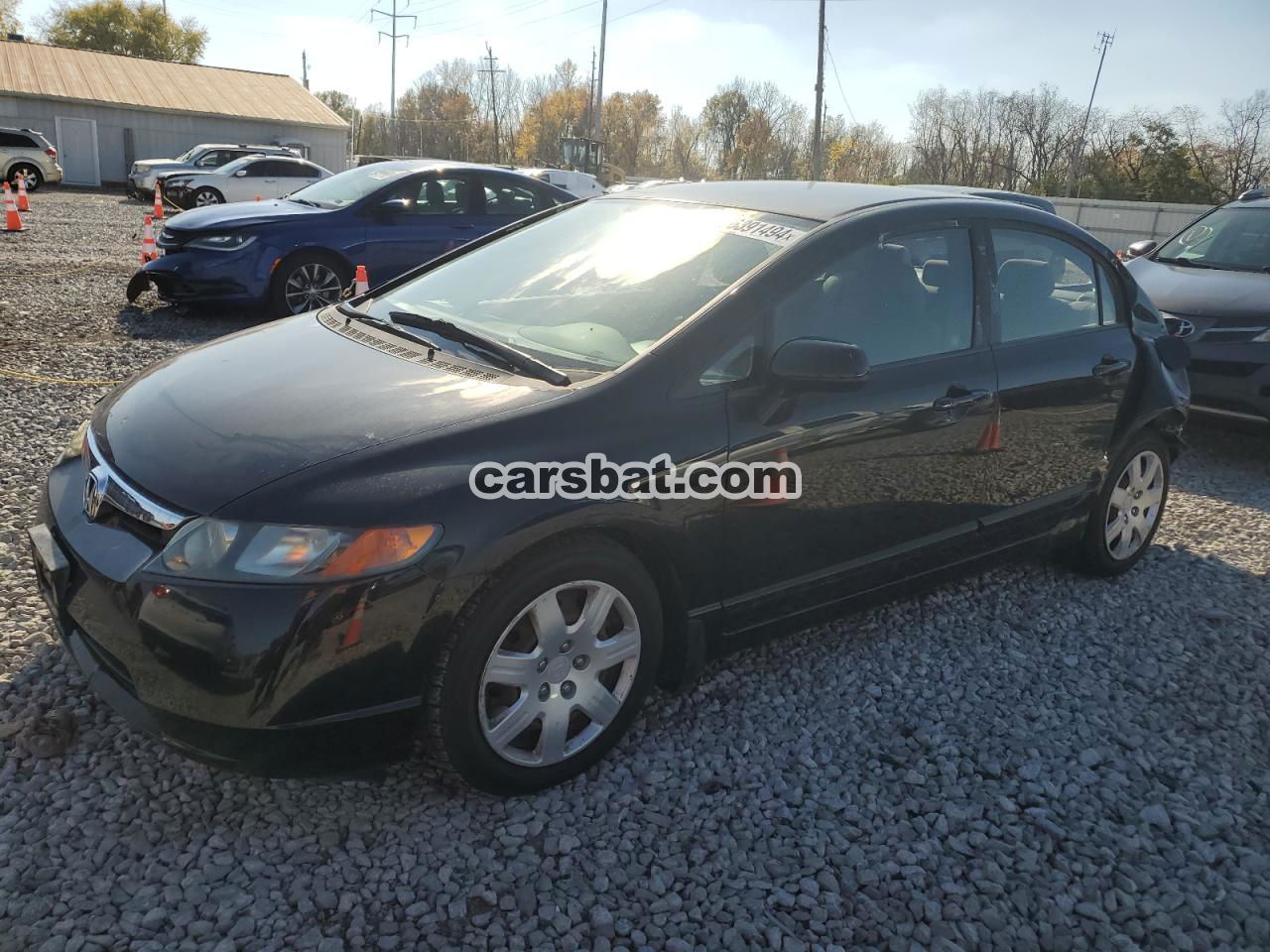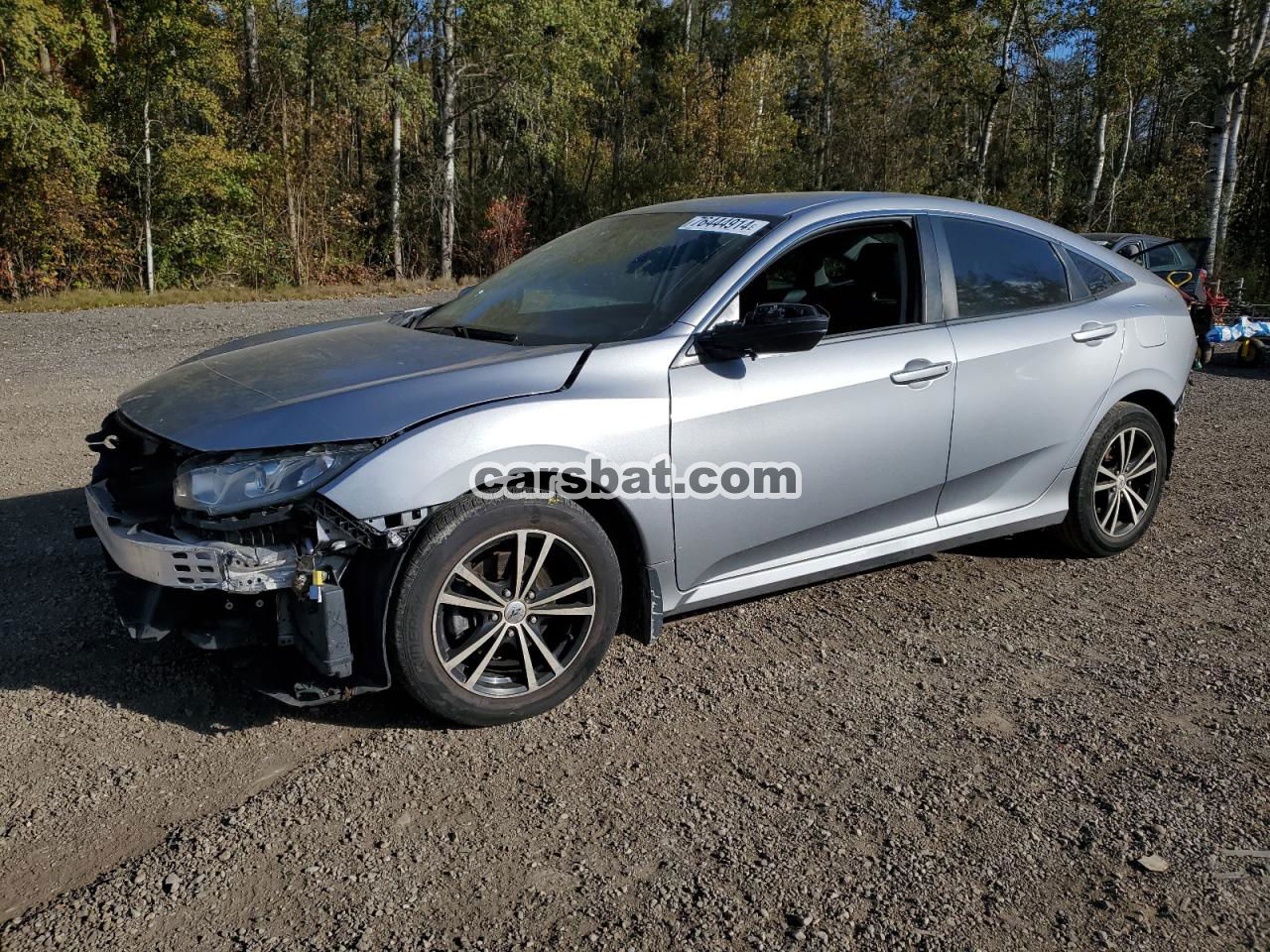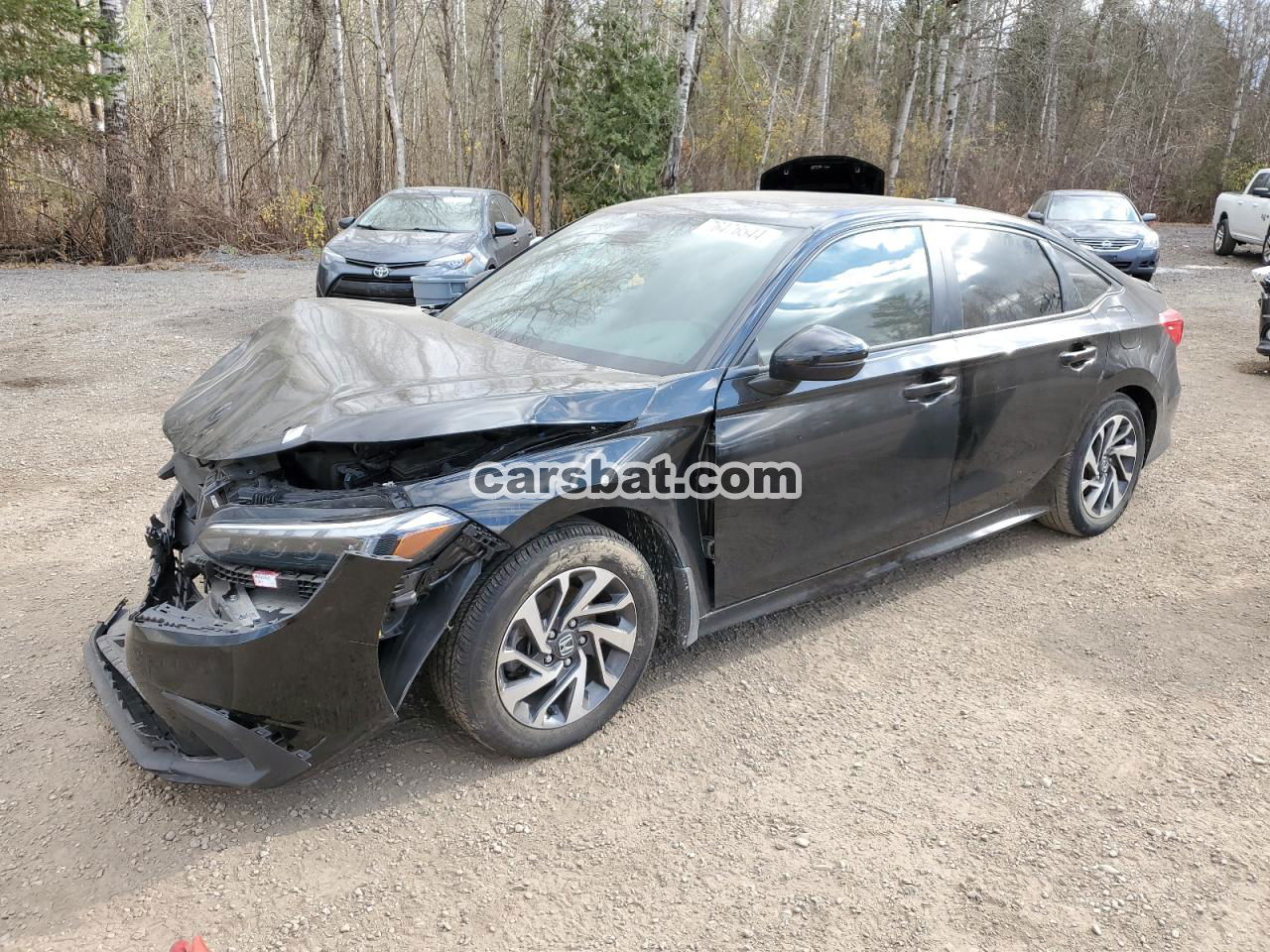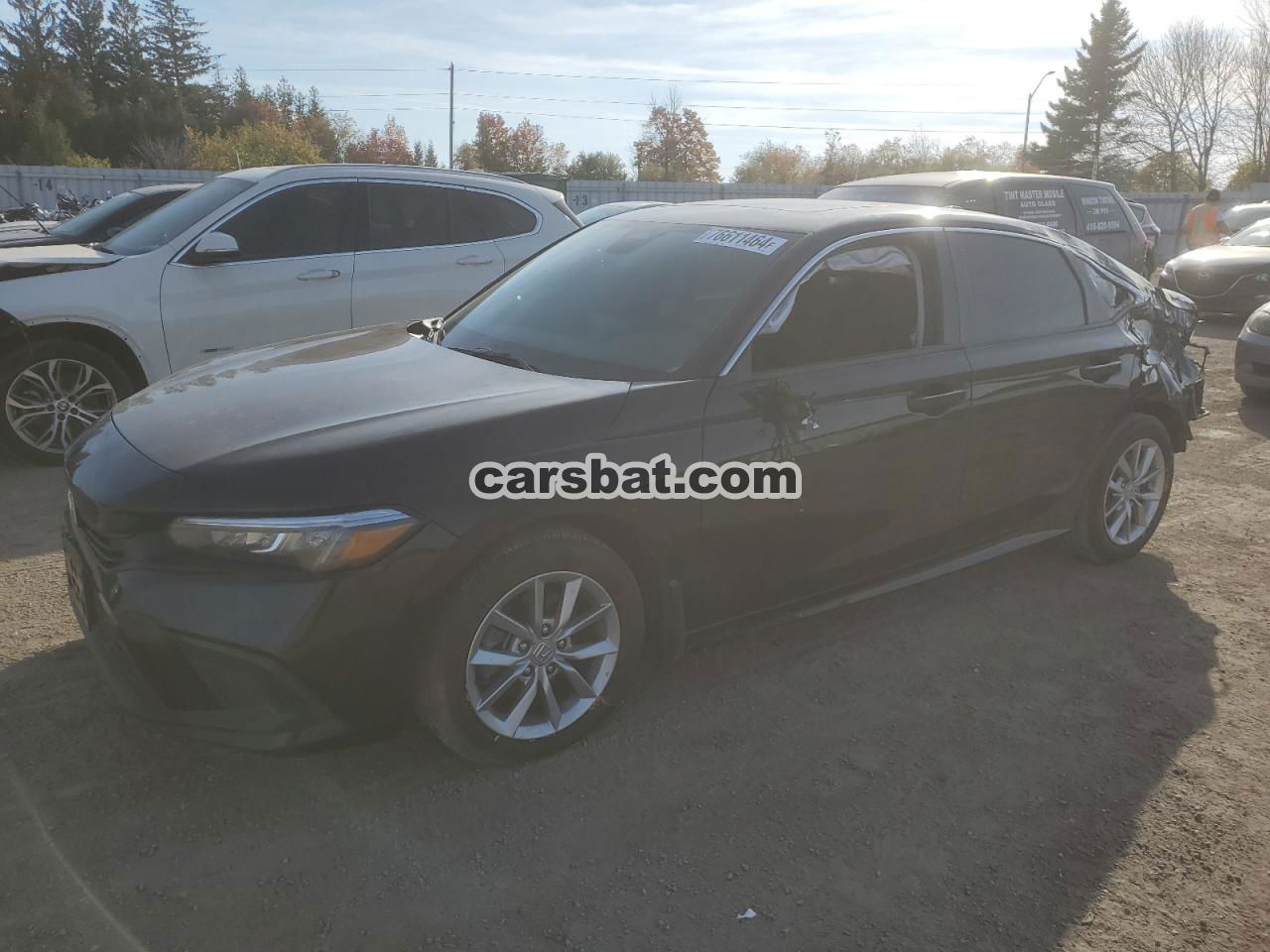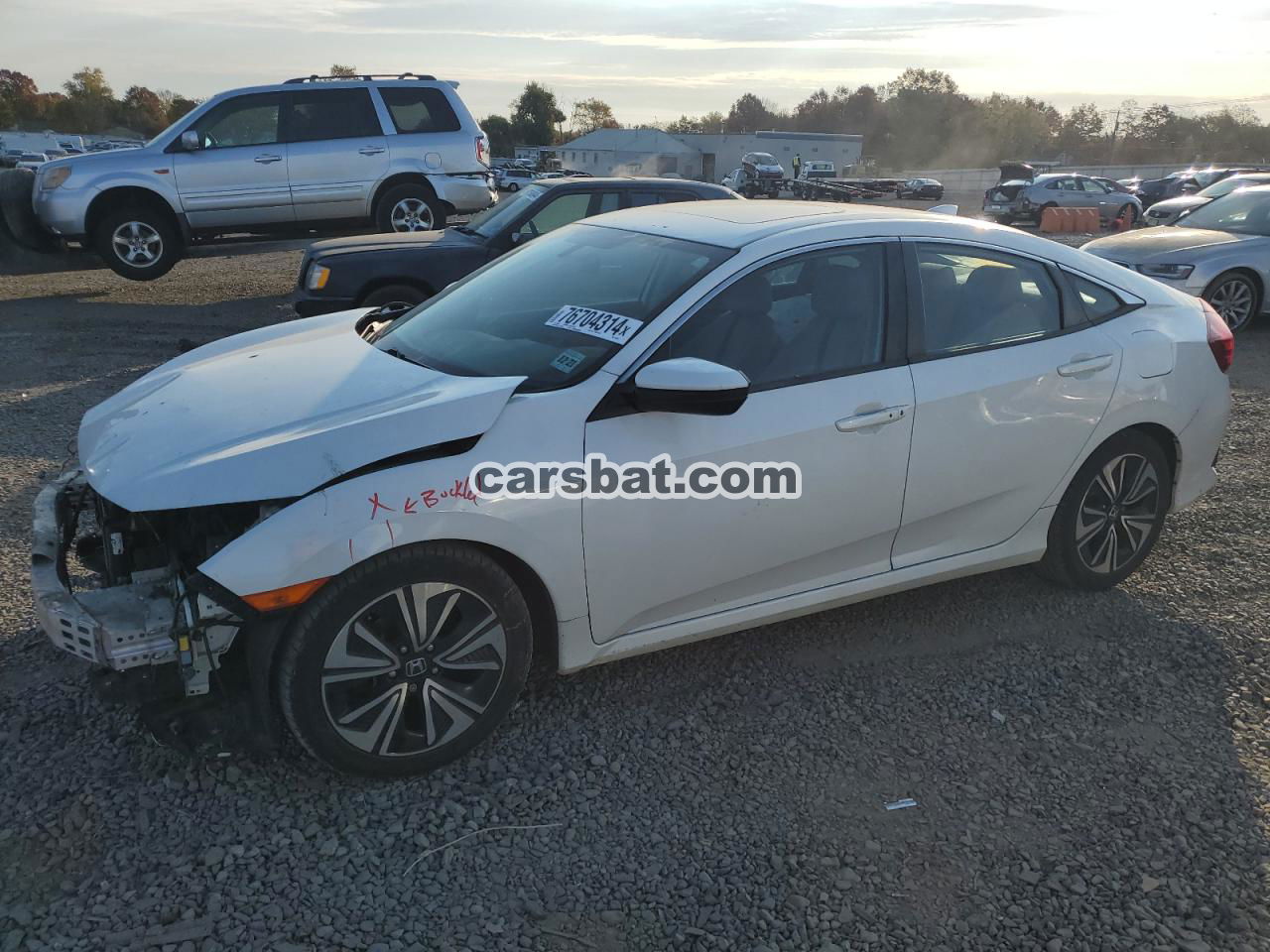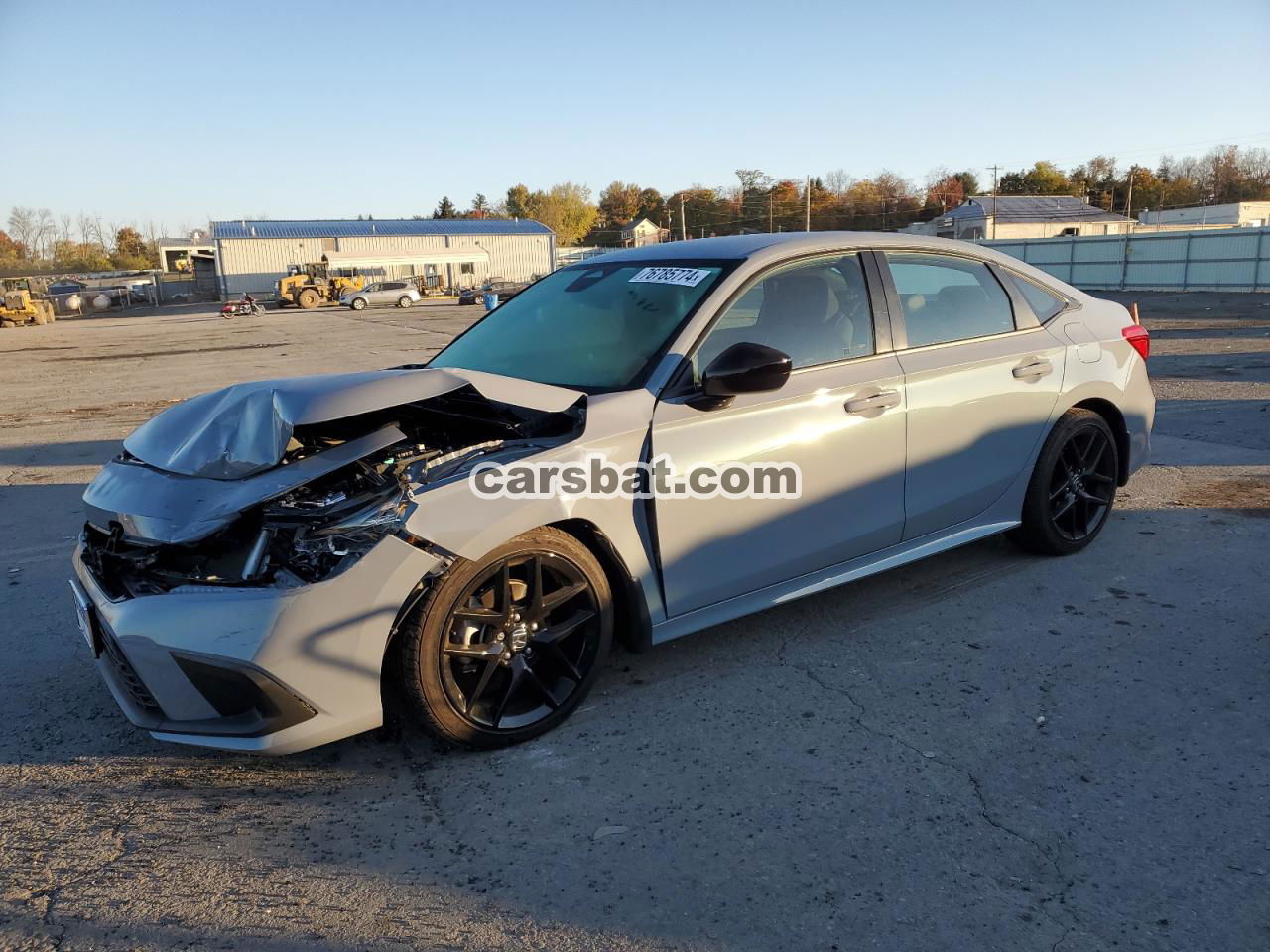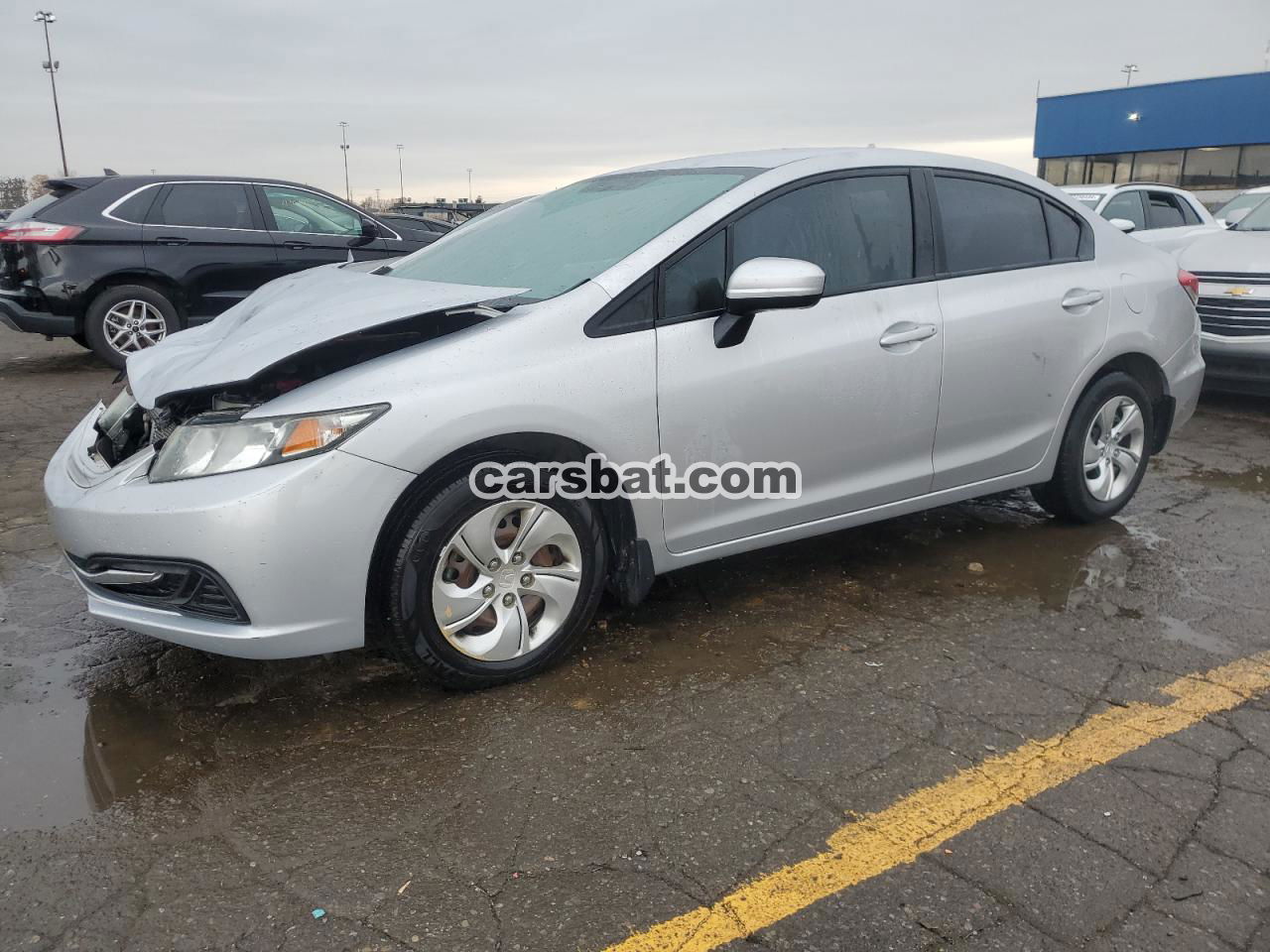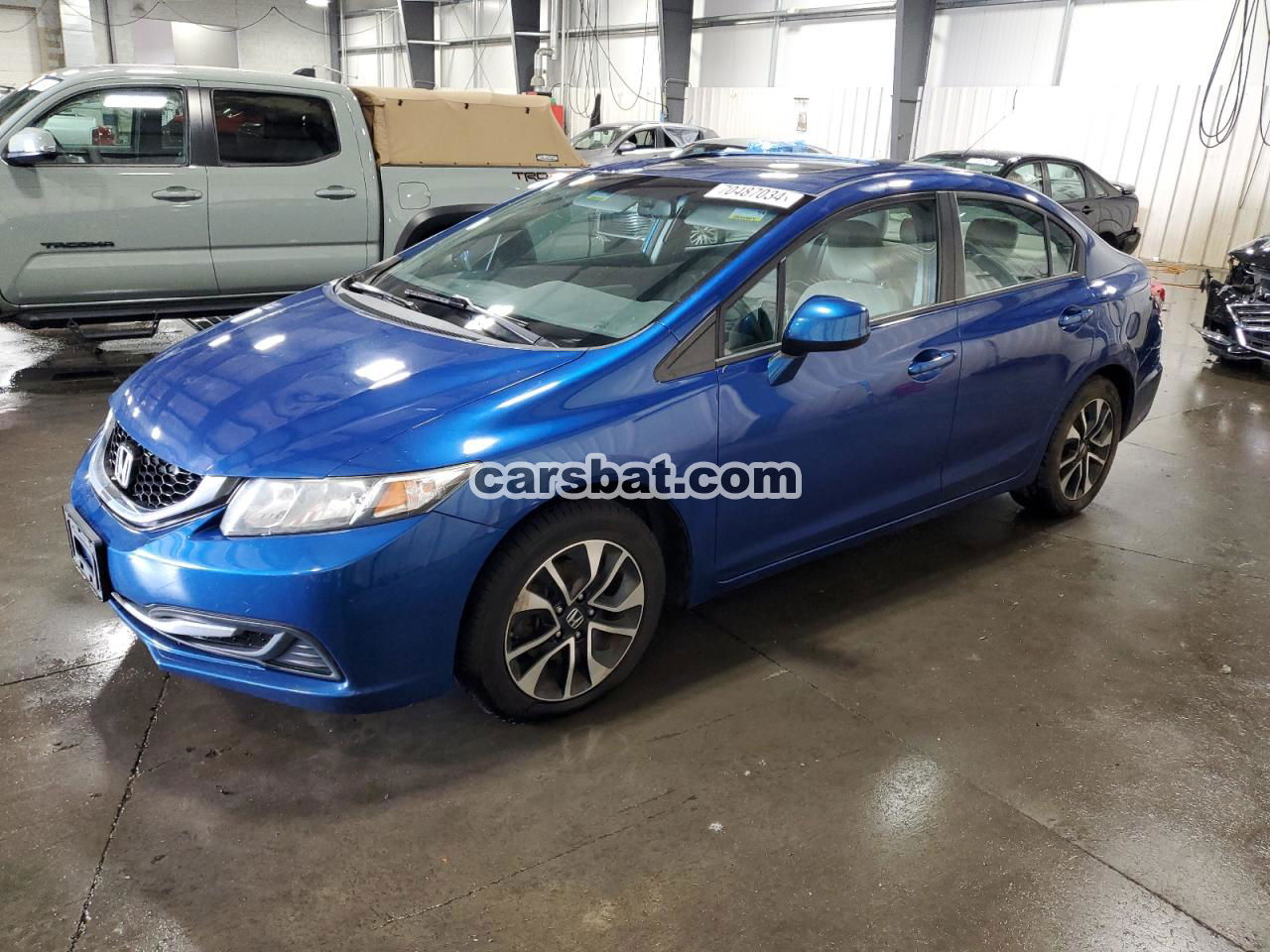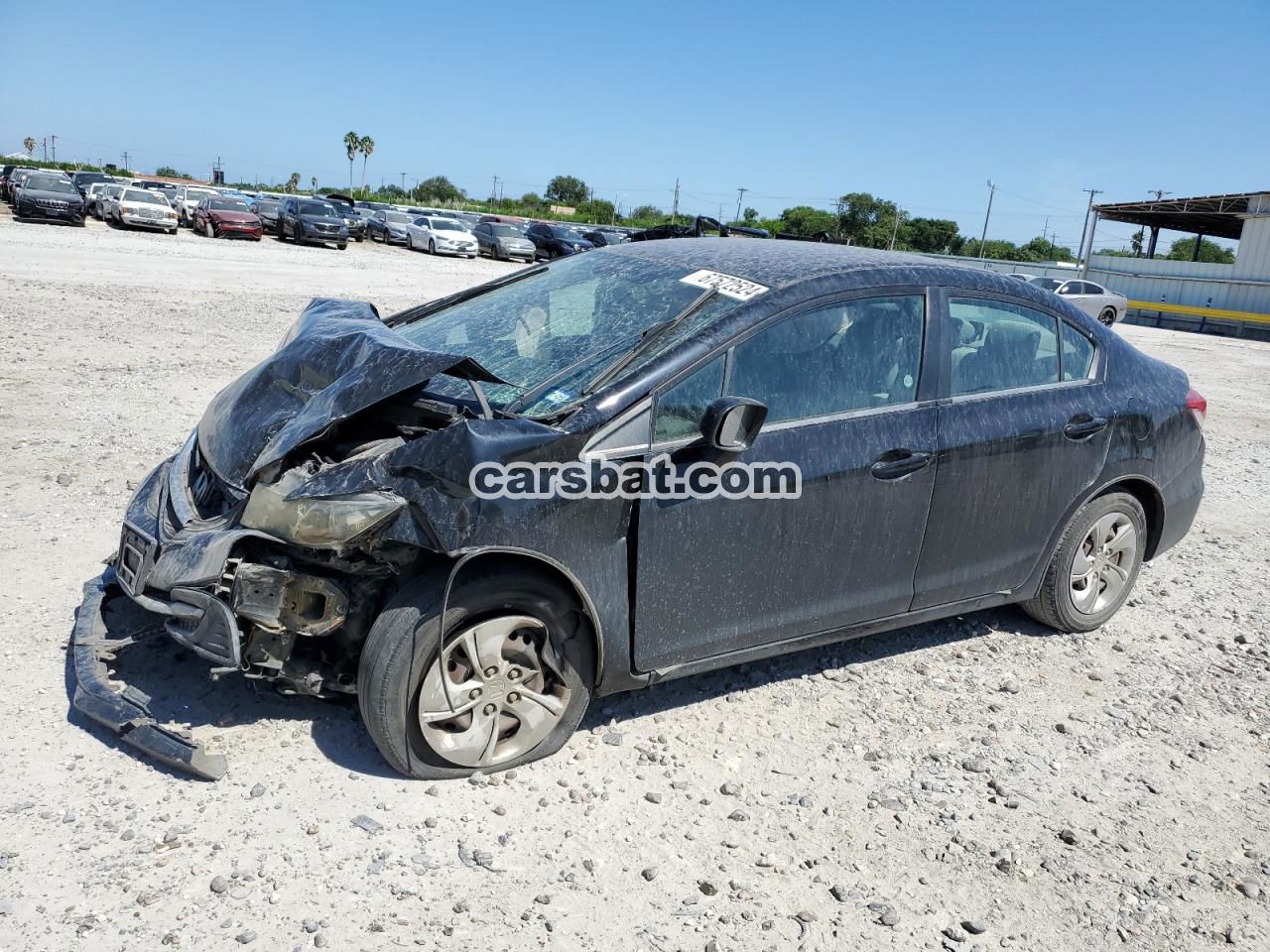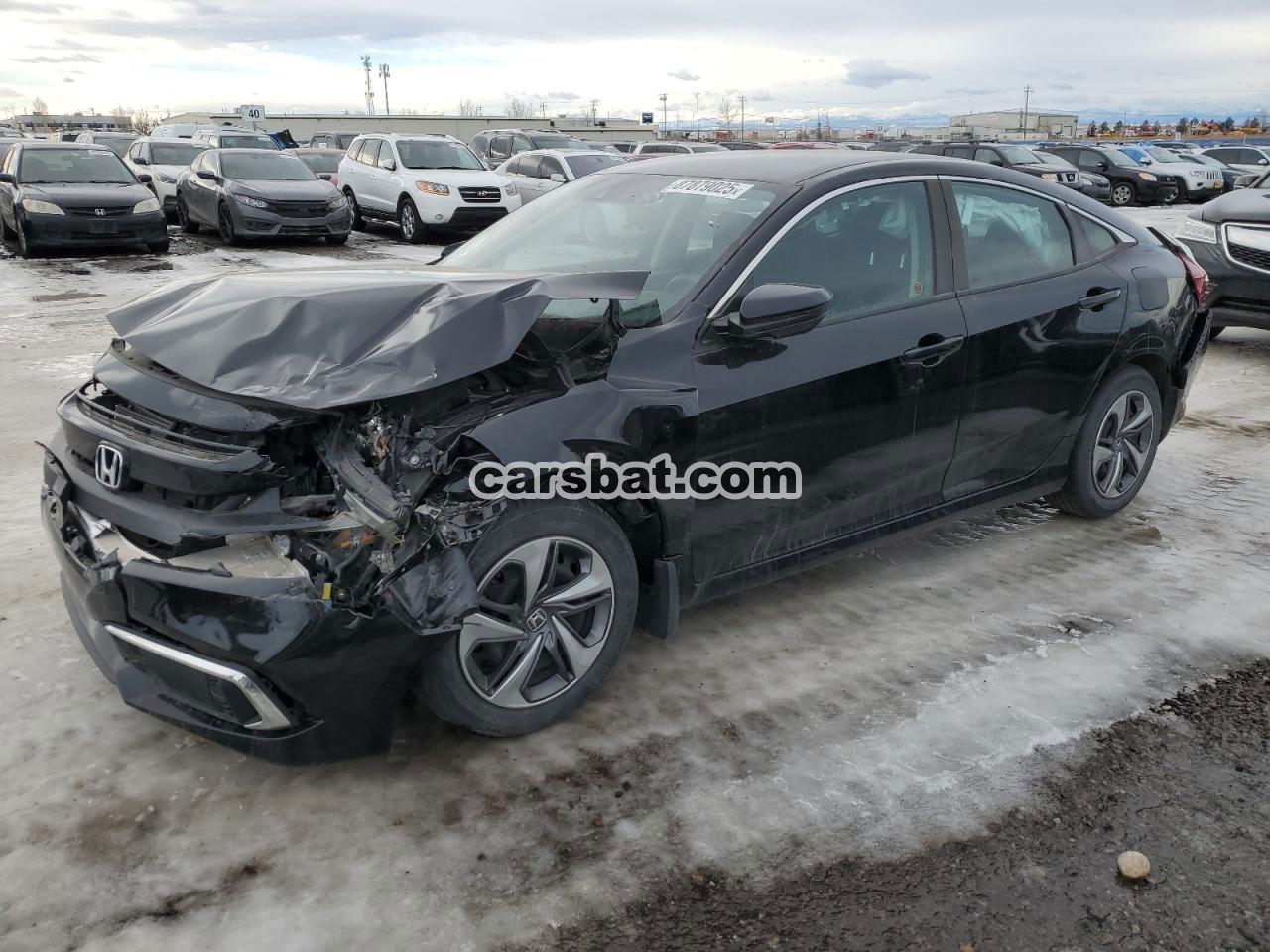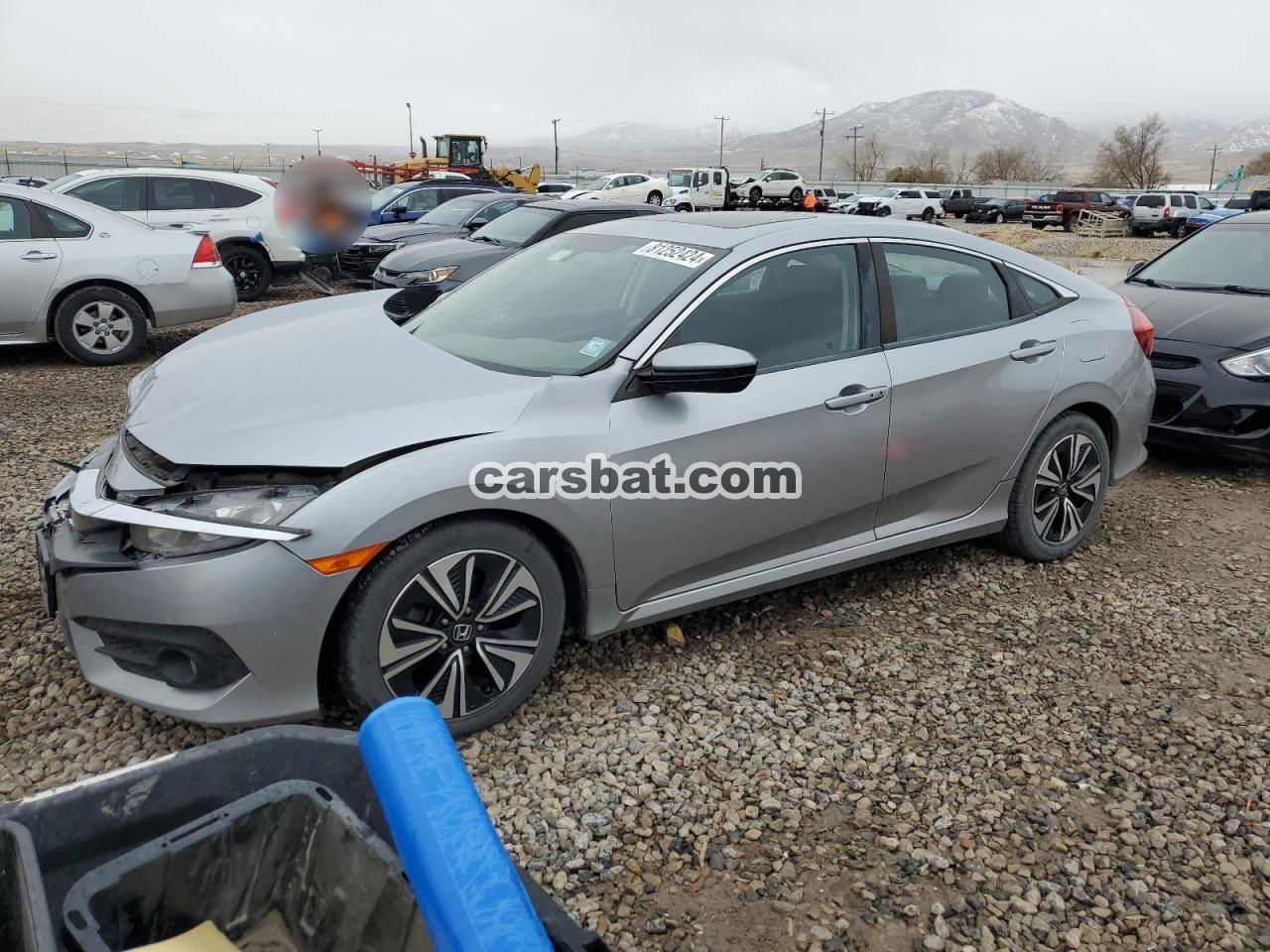How much does Honda Civic cost depending on the year of manufacture, €
| Year | Average price | Lowest Sale | Top Sale |
|---|---|---|---|
| 2025 | 7712 | 7712 | 7712 |
| 2024 | 7162 | 4548 | 9664 |
| 2022 | 5939 | 1611 | 14057 |
| 2021 | 7800 | 1806 | 16205 |
| 2020 | 4675 | 2343 | 7419 |
| 2019 | 4073 | 1120 | 7224 |
| 2018 | 3579 | 2392 | 5174 |
| 2017 | 3732 | 2294 | 5662 |
| 2016 | 3058 | 407 | 8592 |
| 2015 | 2305 | 732 | 5760 |
| 2014 | 1584 | 119 | 2880 |
| 2013 | 2194 | 805 | 4881 |
| 2012 | 1322 | 488 | 2538 |
| 2011 | 391 | 244 | 537 |
| 2010 | 1097 | 339 | 1855 |
| 2009 | 923 | 342 | 1660 |
| 2008 | 454 | 49 | 1220 |
| 2007 | 632 | 136 | 879 |
| 2006 | 671 | 171 | 1415 |
| 2005 | 227 | 119 | 366 |
| 2004 | 342 | 146 | 537 |
| 2003 | 415 | 415 | 415 |
| 2002 | 622 | 366 | 952 |
| 2000 | 260 | 195 | 317 |
| 1999 | 122 | 122 | 122 |
| 1998 | 122 | 122 | 122 |
Honda Civic pricing by fuel type, €
| Year | Petrol | CNG | Hybrid |
|---|---|---|---|
| 2025 | 7712 | - | - |
| 2024 | 7162 | - | - |
| 2022 | 5939 | - | - |
| 2021 | 7800 | - | - |
| 2020 | 4675 | - | - |
| 2019 | 4073 | - | - |
| 2018 | 3579 | - | - |
| 2017 | 3732 | - | - |
| 2016 | 3058 | - | - |
| 2015 | 2305 | - | - |
| 2014 | 1584 | - | - |
| 2013 | 2194 | - | - |
| 2012 | 1322 | - | - |
| 2011 | 390 | - | - |
| 2010 | 1097 | - | - |
| 2009 | 831 | - | 1660 |
| 2008 | 667 | - | 134 |
| 2007 | 632 | - | - |
| 2006 | 671 | - | - |
| 2005 | 227 | - | - |
| 2004 | 342 | - | - |
| 2003 | 415 | - | - |
| 2002 | 622 | - | - |
| 2000 | 260 | - | - |
| 1999 | - | 122 | - |
| 1998 | 122 | - | - |
Honda Civic pricing by body type, €
| Year | Coupe | Sedan |
|---|---|---|
| 2025 | - | - |
| 2024 | - | - |
| 2022 | - | - |
| 2021 | - | - |
| 2020 | - | - |
| 2019 | - | - |
| 2018 | - | - |
| 2017 | 3416 | 3954 |
| 2016 | 3132 | 3040 |
| 2015 | - | 2396 |
| 2014 | - | 1584 |
| 2013 | - | 2194 |
| 2012 | - | 1357 |
| 2011 | - | 390 |
| 2010 | - | 1097 |
| 2009 | 342 | 996 |
| 2008 | - | 454 |
| 2007 | 508 | 756 |
| 2006 | 927 | 620 |
| 2005 | - | 157 |
| 2004 | - | 342 |
| 2003 | - | 415 |
| 2002 | 732 | 586 |
| 2000 | 195 | 292 |
| 1999 | - | 122 |
| 1998 | 122 | - |


